- Testimonials
- 763-506-0930
- 9387 NW HIGHWAY 10, RAMSEY, MN 55303


How to Register a Trailer in Minnesota
Own and register a trailer in minnesota.
Trailers, whether purchased from a dealership or from an individual, need to be properly licensed and registered in the state of Minnesota. The Department of Public Safety has regulations on how to title and register a trailer in the state. These often depend on the weight of the trailer. Trailers under a specific weight may not require a title, but still need to be registered. To help keep Minnesotans safe and abide by state regulations, we’ll cover the basic laws regarding trailer ownership.
Trailer Registration
Minnesota requires every trailer on the street or highway be registered with the state. Though only trailers over a specific weight require a title. Small utility trailers (a GVWR under 3,000 lbs.) get a permanent registration. The registration sticker is placed on the tongue of the vehicle. This is normally the extent of the regulation on recreational trailers.
If your trailer is more than 3,000 pounds, the registration will be based on weight. Your registration will expire and need to be routinely renewed on heavier trailers. Commercial trailers and trailers used for farming have their own regulations that can be found on the Minnesota DPS website .
What do I need to register a trailer?
When you register a new trailer, be sure to bring a few forms of personal identification. You’ll also need to know the name of your insurance company, the policy number and the expiration date of the policy. These requirements are always subject to change, so we recommend contacting your local government office and to confirm what you’ll need before you go.
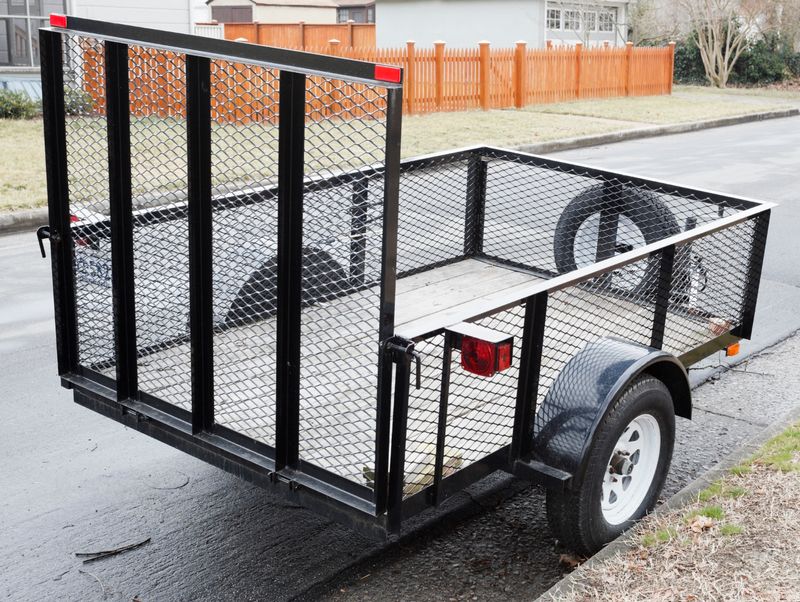
When does my trailer need a title?
Utility , boat and snowmobile trailers with a GVWR under 4,500 pounds don’t need a title in Minnesota, unless there is a lien. To get a title for your trailer, you should bring the registration as proof of ownership to the local DMV. You’ll also need to sign and bring section B of the Application to Title and Register a Motor Vehicle . These two documents should be all you need to get a trailer title, but we always recommend you check with your local deputy registrar !
Minnesota Trailer Laws
Before you purchase and register a trailer in Minnesota, you should be familiar with state trailer laws. Trailers should have adequate brakes, abide by signal and lighting laws, and meet dimension and weight restrictions.
Weight and Dimension
Trailers should not exceed 45 feet in length, and the maximum length of the tow vehicle and trailer should not exceed 60 feet combined. The max height is 102 inches and max height is 13 feet and six inches.
The trailer brake requirement depends on the weight. A trailer with a gross weight of 3,000 pounds or more, or weighs more than the tow vehicle, needs to have adequate brakes installed. Additionally, a trailer over 6,000 lbs. must have brakes that can hold the weight of the trailer if it’s detached from the tow vehicle.
Lastly, the drawbar connection between the trailer and the tow vehicle cannot be more than 15 feet.
Trailer Lighting and Mirrors
In Minnesota, trailers made in 1960 or later have to be equipped with at least two rear headlamps and two reflectors. The rear headlamps should emit red light at least 500 feet behind the trailer. Trailers made before 1960 only require one rear headlamp.
Trailer reflectors should be 20 to 60 inches from the ground. They should be visible from at least 300 feet away from the trailer.
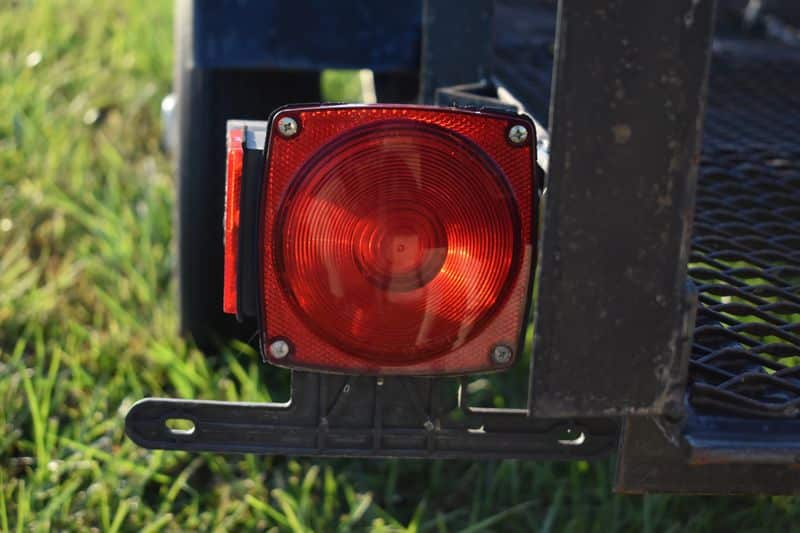
Any trailer that obstructs the view from the tow vehicle, particularly behind the vehicle, should have a rearview mirror that allows the driver to see at least 200 feet behind the trailer.
Remember that state and local trailer requirements are always changing, so you should confirm that your trailer meets the current regulations before you begin towing.
If you need trailer service to repair brakes or lighting so that they meet state law and safety requirements, bring your trailer by M&G! Our team can install brakes, repair wiring and more. And, if you need a new trailer, we can help with that too! Start by browsing trailers for sale on our website. Stop in once you’re ready to get your new trailer!
In Need of a New Trailer?
Check out our full trailer inventory online today! We have tons of trailers in any model you need. Shop dump, enclosed, snowmobile, utility, fuel tank trailers, truck beds and more at M&G Trailers! Contact us online or stop by our Minnesota trailer dealership when you’re ready to make a purchase.
In need of a new trailer?
Check out our full trailer inventory online today! We have tons of trailers in any model you need. Shop dump, enclosed, snowmobile, utility, fuel tank trailers, truck beds and more at M&G Trailers! Contact us online or stop by our Minnesota trailer dealership when you're ready to make a purchase.

RV Registration Rules by State
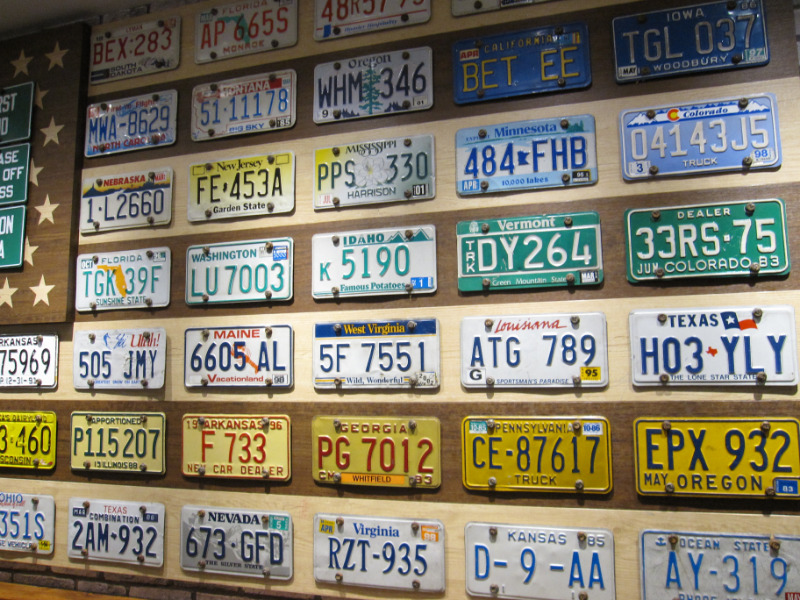
Sharing is caring!
Thanks for your support! If you make a purchase using our links in this article, we may make a commission. And, as an Amazon Associate, I earn from qualifying purchases. See the full disclosure here .
There are few things as exciting as buying a new (or new to you) RV. But before you can start your new RV adventure, there’s one thing you need to do: register your RV. Here are the RV registration rules by state.
No matter what kind of RV you have, you’ll need to register it before you can legally take it on the road. But because the process varies from state to state (and even county to county), things can get confusing. But don’t worry; we’re here to walk you through the process in all 50 states and DC. First, let’s take a look at some common registration questions.
Do RVs and Camper Trailers Need to be Registered Like a Regular Vehicle Does?
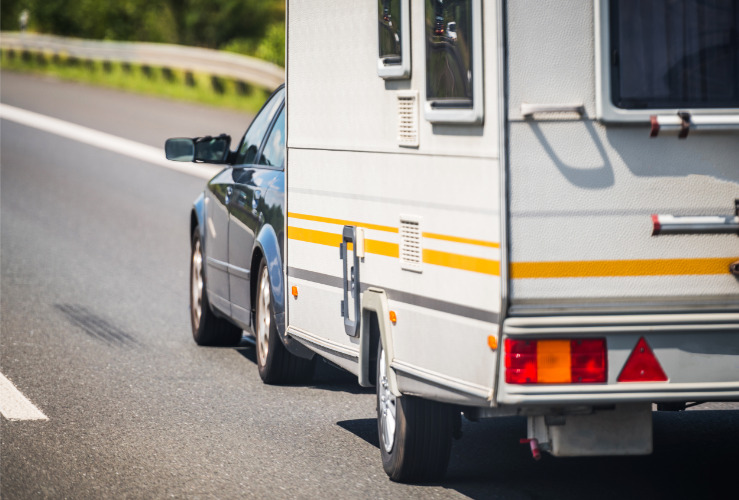
Do RVs need to be registered like your regular vehicle? The short answer is: yes. All 50 states (and DC) require you to register an RV before taking it on the road, just like a regular vehicle.
You’ll need to register your RV whether it’s self-propelled (like a motorhome) or towed by another vehicle (like a travel trailer, fifth wheel, pop-up).
In some cases, trailers are registered slightly differently than other vehicles. But in general, the process is the same for RVs as for anything else on the road.
The main difference between registering an RV and a vehicle is the cost. RVs usually (but not always) pay different fees than other passenger cars.
Do Towable RVs have VIN Numbers?
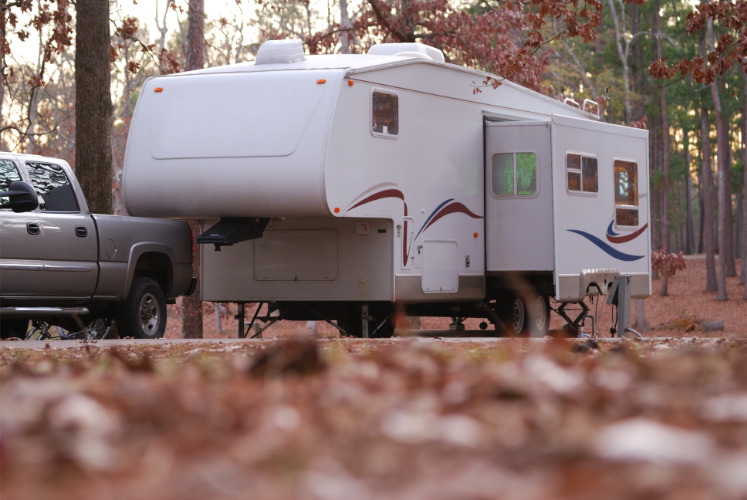
You’ll need to provide your vehicle’s Vehicle Identification Number (VIN) as a part of the registration process. But do towable RVs even have VIN numbers?
Yes, towable RVs like travel trailers and fifth wheels do have a VIN! Even small trailers like pop-up campers will have a VIN.
Their location isn’t standardized, so you might have to hunt a bit to find it. The VIN on a trailer is commonly found:
- Along the tongue of the trailer
- On the frame of the trailer
- Inside the lower corner of one of the exterior sidewalls
- Within the interior cabinets
- Inside of exterior storage areas or compartments
Because the VIN on a towable RV can be hard to find, it’s often easier to check your documentation if you can. A vehicle’s VIN can be found on its title. It is often on the bill of sale as well, but not always.
Do I Need Insurance to Register My RV or Camper?
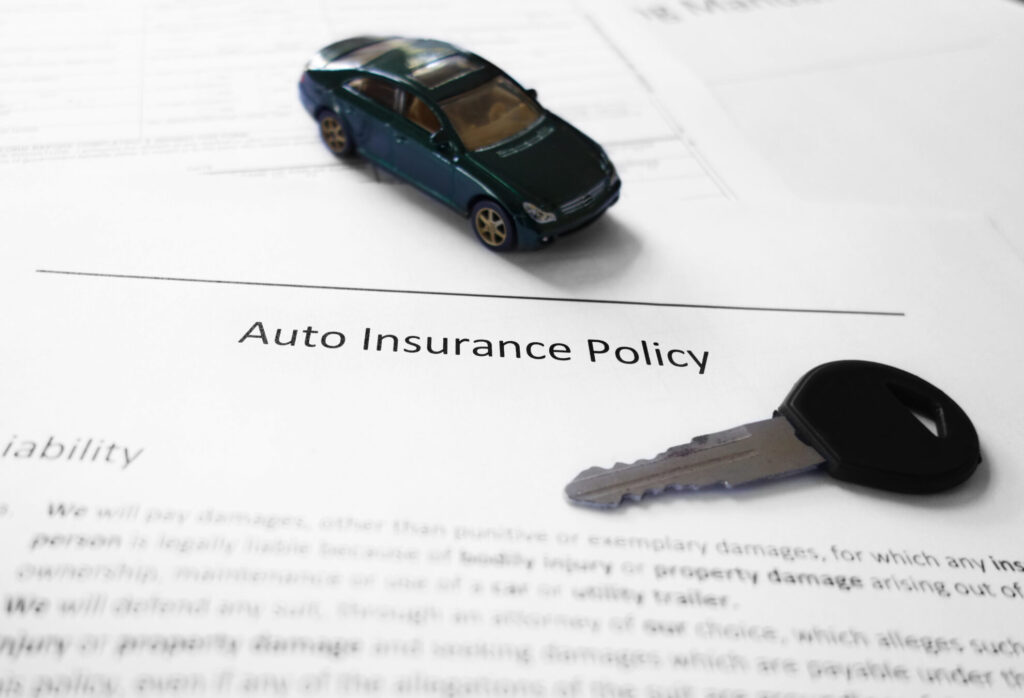
Yes! Just like any vehicle, auto insurance is required if you want to take your RV on the road. Without insurance, you won’t be able to register your vehicle.
However, a towed RV generally doesn’t need its own insurance. Instead, the insurance of your tow vehicle will generally extend to cover the trailer.
The exact requirements will vary from state to state. You’ll need coverage for bodily injury and property damage in every state. But some states also require you to have coverage for personal injury or uninsured/underinsured motorist coverage.
One other thing to note is that if you’re planning to rent your RV for some extra cash, you’ll probably need a slightly different policy. In fact, a typical insurance policy will drop your coverage for lending out your RV to someone else!
To avoid this problem, you can use a policy like this one from Roamly . They have policies that let you rent out your RV without worrying about having your coverage dropped.
Once you buy and register your RV, give RV Trip Wizard a try for all your trip planning needs! We love it and use it almost every day! Use discount code RVBLOGGER and save 25% when you sign up!
RV Registration Rules By State
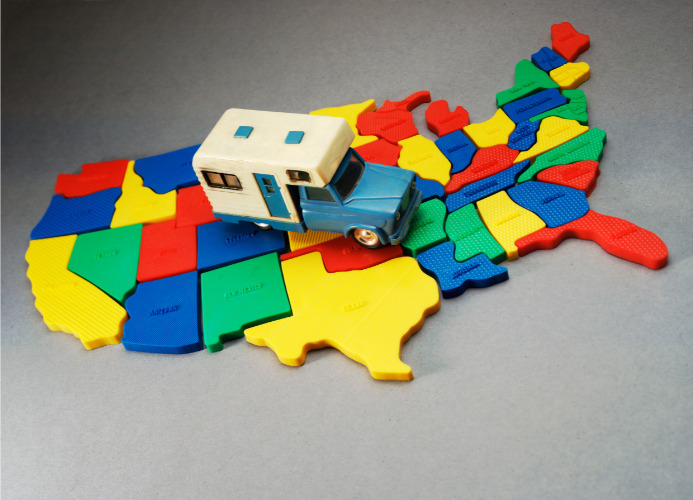
When you register your RV, you’ll generally title your RV at the same time. In the case of private sales, you’ll have to get the title transferred into your name.
In most cases, the registration process will be more or less the same, no matter what kind of RV you have. Usually, you’ll see a self-propelled RV referred to as a “motorhome” by your state’s DMV or other offices. Towable trailers are referred to by various names such as travel trailers, camper trailers, or recreational trailers.
In almost every state, you can go in person to register your RV. Some states also allow you to register by mail and a few let you register completely online. In many states, if you buy from a dealer, they can handle the title and registration on your behalf.
States usually give you a certain time period to register your vehicle after purchasing one or moving to the state. If you miss this time period, you’ll usually have to pay extra fees as a penalty.
Every state handles its registration fees differently, and fees will also often be different from county to county. In some cases, the state and/or county will provide a fee schedule or calculator. But in other cases, you’ll have to contact the relevant authority directly to find out the exact fees.
Now that we’ve covered the basics, let’s look at the different requirements to register an RV in all 50 states and DC!
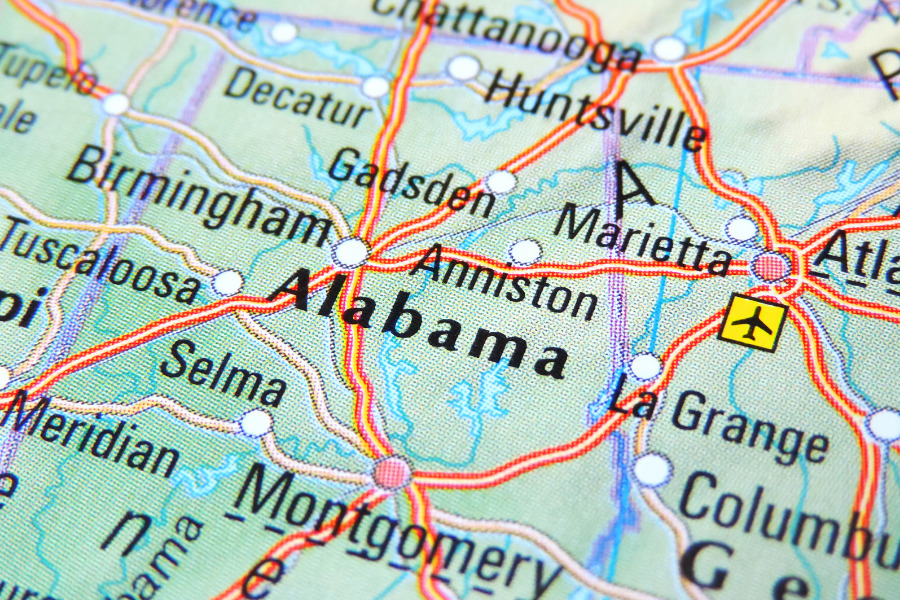
You’ll have to register your RV within 20 days of purchase in Alabama . You’re responsible for registration whether you buy through a dealer or a private sale.
Just moved to the “Heart of Dixie?” New Alabama residents have 30 days to register.
In Alabama, you’ll register your RV in person at your local county registration office . It’s important to note that Alabama tags are renewed every year (so plan accordingly).
There are a couple of exceptions to registering your RV in Alabama though:
- You do not have to register travel trailers older than 20 years.
- Vehicle more than 35 years old also don’t have to be registered.
Alabama has the following coverage requirements for auto insurance:
- Bodily injury liability: $25,000 per person; $50,000 per accident
- Property damage liability : $25,000 per accident
- Uninsured/underinsured motorist coverage: $25,000 per person; $50,000 per accident
The Alabama registration fee for your RV will be based on weight. The fee starts at $23 for vehicles under 8,000 pounds and goes up to $890 for vehicles over 80,000 pounds. Travel trailers pay a flat $12 registration fee.
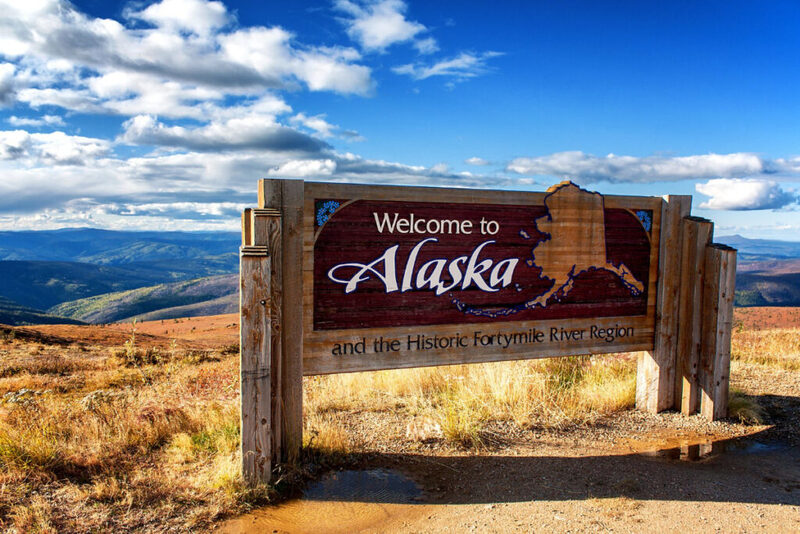
In Alaska, registering your RV is your responsibility whether it’s from a dealer or a private sale. If you’ve just moved to the “Last Frontier,” new Alaska residents have to register within only 10 days of arriving in the state!
RV registration is done in person at your local DMV office and Alaska tags are renewed every two years. However, vehicles over 8 years old can be permanently registered .
Alaska has the following minimum coverage requirements for auto insurance:
- Bodily injury liability: $50,000 per person; $100,000 per accident
- Property damage liability: $25,000 per accident
The base fee to register is $100 for a motorhome and $30 for a trailer. You might have to pay extra fees depending on where you live as well. For example, residents of Anchorage pay an extra $110 to register their motorhome.
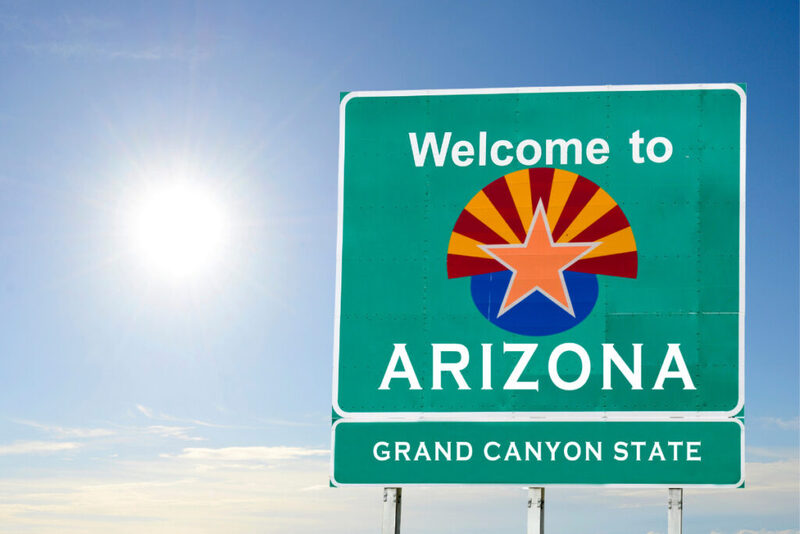
You must register your RV within 15 days of purchase in Arizona. You’re responsible for handling the registration whether you buy from a dealer or a private sale. New Arizona residents must register as soon as they establish residency.
In the “Grand Canyon State”, you’ll register your RV in person at your local Motor Vehicle Division office . You can register for one, two, or five years at a time which is convenient if you’ll be on the road.
Keep in mind, you may be required to do an emissions test before registering your RV. This is required for any vehicle more than 5 years old unless it was made before 1967.
Arizona has the following coverage requirements for auto insurance :
- Property damage liability: $15,000 per accident
You’ll pay $13.50 in registration fees , plus a vehicle license tax (VLT). The VLT is based on the value of the vehicle and the amount of the VLT goes down every time you renew.
Whether you buy through a dealer or a private sale, you’ll have to handle the registration yourself within 30 days of purchase in Arkansas. New residents of the “Natural State” also have 30 days to register.
Registration is done completely online through the Arkansas My DMV website . This is a convenient method because Arkansas tags are renewed every year.
Arkansas has the following minimum coverage requirements for auto insurance:
Registration fees are based on vehicle type and weight:
- $17 for motorhomes under 3,000 pounds
- $25 for motorhomes between 3,001 and 4,500 pounds
- $30 for motorhomes over 4,500 pounds
Trailers are registered permanently for a flat $36 fee. There is also a $2.50 validation decal fee and a $10 title fee.
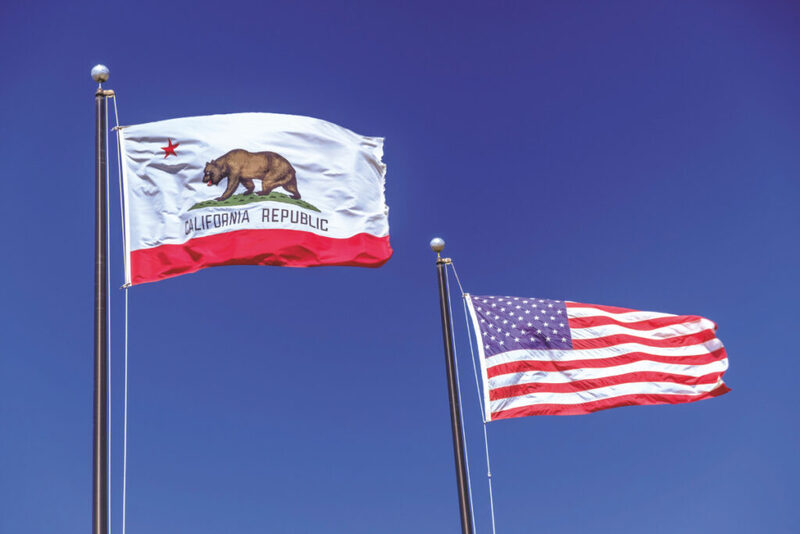
If you’ve completed a private RV sale in California, you’ll need to register your RV within 10 days of purchase in the “Golden State”. If you buy through a dealer, they’ll usually take care of the registration for you . Just moved? New California residents have 20 days to register their RVs.
Within California, you’ll register your RV in person at your local DMV office . California tags are renewed every year. An added step is that your RV may need to pass a smog inspection to be registered.
California has the following minimum coverage requirements for auto insurance:
- Bodily injury liability : $15,000 per person; $30,000 per accident
- Property damage liability : $5,000 per accident
California vehicle registration fees are fairly complicated. They’re based on your vehicle type, purchase price, weight, where you live, and more. There are also other fees to pay like the California Highway Patrol fee and the transportation improvement fee.
To help you figure out your fees, California has a fee calculator for both new vehicles and used vehicles .

You have 60 days to register your RV after you buy it in Colorado. New residents to the “Centennial State” have 90 days to register!
Registration can be done online at the Colorado DMV website or in person at your local DMV office . However, if you live in Crowley or Hinsdale county, you cannot register online – you’ll have to go in person. Colorado RV tags are renewed every year.
Colorado has the following minimum coverage requirements for auto insurance:
- Property damage liability: $15,000 per accident
Registration fees in Colorado are based on a number of factors like your vehicle’s type, weight, and purchase price. The exact calculation depends on what county you live in .
Connecticut
In Connecticut, registering your newly purchased RV is your responsibility in the “Constitution State”. Connecticut’s DMV doesn’t specify a timeframe for registering a newly purchased vehicle. However, new residents have 90 days to register .
You can only register in person at a DMV office and you’ll need to make an appointment . Connecticut tags are renewed every three years.
Keep in mind that you won’t be able to register your RV if you have unpaid property taxes or parking tickets. You’ll also have to meet Connecticut’s emissions testing requirements to be able to register.
Connecticut has the following minimum coverage requirements for auto insurance:
Connecticut lists the following registration fees for motorhome registration:
- $112.50 Registration Fee
- $5.00 Plate Fee
- $15.00 Clean Air Act Fee
- $10.00 Greenhouse Gas Fee
- $10.00 Administrative Fee
- $25.00 Title Fee
- $10.00 Lien Fee (if applicable)
- $15.00 Passport to Parks Fee
For a trailer, the fees are:
- $28.50 Registration Fee
- $5.00 Plate Fee
- $25.00 Title Fee (if the GVWR is more than 3000 pounds)
- $10.00 Administrative Fee
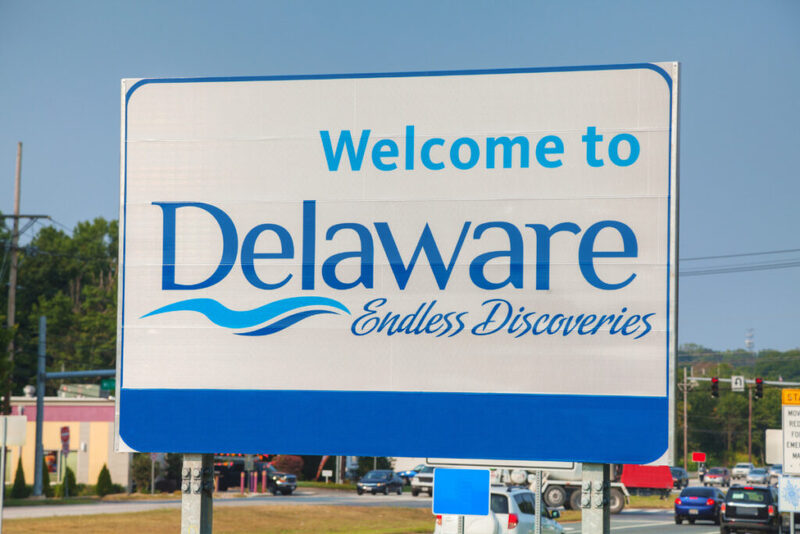
If you live in the “First State,” you must register an RV within 30 days of purchasing it in Delaware. Whether you buy from a dealer or a private sale, registration is your responsibility. New Delaware residents have 60 days to register.
Registration is done in person at your local DMV office . Delaware tags are renewed every year. Plus, your RV will have to pass a safety and emissions inspection to be able to register.
Delaware has the following minimum coverage requirements for auto insurance:
- Property damage liability: $5,000 per accident
- Personal injury protection: $15,000 per person; $30,000 per accident
Registration fees are based on weight and vehicle type. RVs under 5,000 pounds cost $40 to register. For every 1,000 pounds over 5,000, you’ll pay an extra $6.40.
Trailers are $15 under 1,000 pounds; $20 between 1,001 and 2,000 pounds; $40 from there up to 5,000 pounds. For every 1,000 pounds over 5,000, you’ll pay another $18.
A newly purchased RV in Florida should be registered within 30 days of purchase. Like in many other states, an authorized dealership can handle the registration process for you. New residents of the “Sunshine State” have just 10 days to register their vehicles.
You’ll register in person at your local tax collector’s office . Florida tags are renewed every year.
Florida has the following minimum coverage requirements for auto insurance:
- Bodily injury liability: $10,000 per person; $20,000 per accident
- Property damage liability: $10,000 per accident
- Personal injury protection: $10,000 per person
- Uninsured motorist coverage : $10,000 per person; $20,000 per accident
To register your RV in Florida, you’ll have to pay a $225 initial registration fee the first time you register, plus $28 for your license plate. You will also have to pay other fees based on your vehicle’s weight, type, and use.
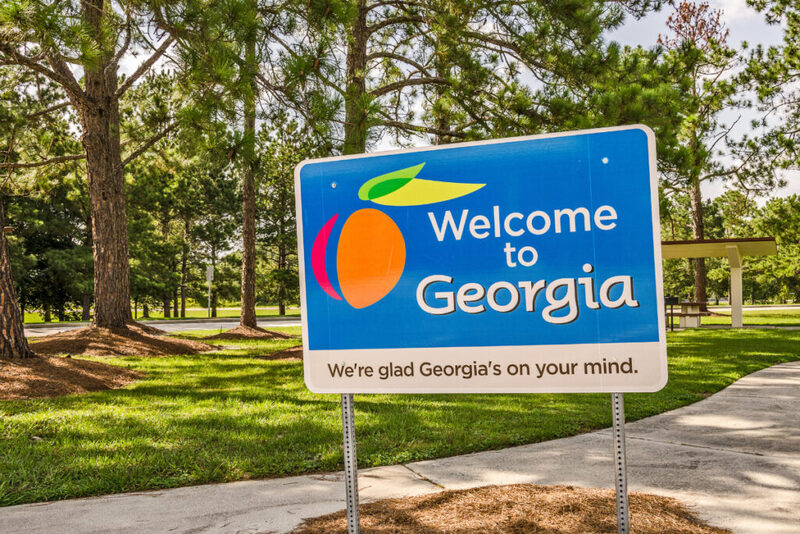
Welcome to Georgia! If you purchased an RV at a dealer in the “Peach State,” you have 30 days to register a vehicle – but the dealer is able to do this for you! For a private sale, you’ll have to register your RV within seven business days . New Georgia residents have 30 days to register.
You’ll register in person at your local county tag office . Georgia tags are renewed every year.
Georgia has the following minimum coverage requirements for auto insurance:
- Property damage liability: $25,000 per person
There are a number of fees you might have to pay. Most commonly, you’ll pay $18 for the title application as well as the title ad valorem tax ( TAVT ). The TAVT is 6.6% of the fair market value of your vehicle or 3% for new Georgia residents.
Aloha and welcome to Hawaii!
Each of Hawaii’s counties has its own registration process for registering an RV. But the process doesn’t vary too much between them.
In the “Aloha State,” a dealership will usually handle the registration for you. For a private sale, you’ll have 30 days to register. New residents of Hawaii also have 30 days to register. Hawaii tags are renewed every year.
You’ll have to register in person at the appropriate office depending on your county. You can find more info on your county’s website:
- Hawaii County
- Honoulu County
- Kauai County
- Maui County
Before you can register your RV, it will have to undergo a safety inspection. These can be done at a gas station or mechanic.
Hawaii has the following minimum coverage requirements for auto insurance:
- Bodily injury liability coverage: $20,000 per person; $40,000 per accident
- Property damage liability coverage: $10,000
- Uninsured/underinsured motorist coverage: $20,000 per person; $40,000 per accident
Registration fees are based on your vehicle’s weight. The exact amount you’ll pay depends on the county and will be given to you at the DMV.
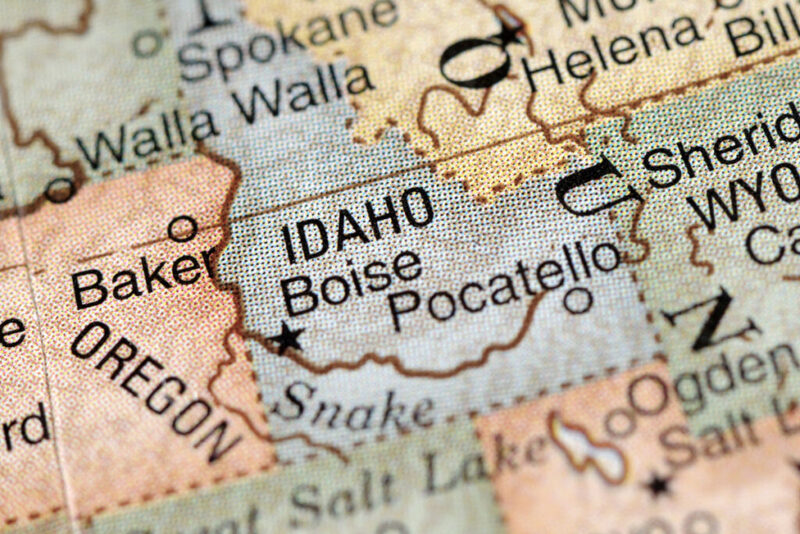
In Idaho, if you buy your RV from a dealership, they’ll usually handle the registration process for you. If not, or if you do a private sale, you’ll have 30 days to register. New “Gem State” residents have 90 days to register.
Registration is done in person at your local DMV office and Idaho tags are renewed every year.
Idaho has the following minimum coverage requirements for auto insurance:
- Property damage liability: $15,000 per person
Registration fees for RVs are based on market value.
…Fees start at $8.50 for the first $1,000 of market value, plus $5 for each additional $1,000 of market value. Idaho DMV’s registration fact sheet
A motorhome’s value will be calculated based on 25-60% of its full value. The percentage depends on the type of motorhome:
- Class C – 50%
- Class A – 60%; front engine diesel – 45%; rear engine diesel – 58%
- Van conversions or Class B – 25%
The value of a towable RV is based on 100% of the value.
On top of the value fee, there’s also an extra $4 registration fee.
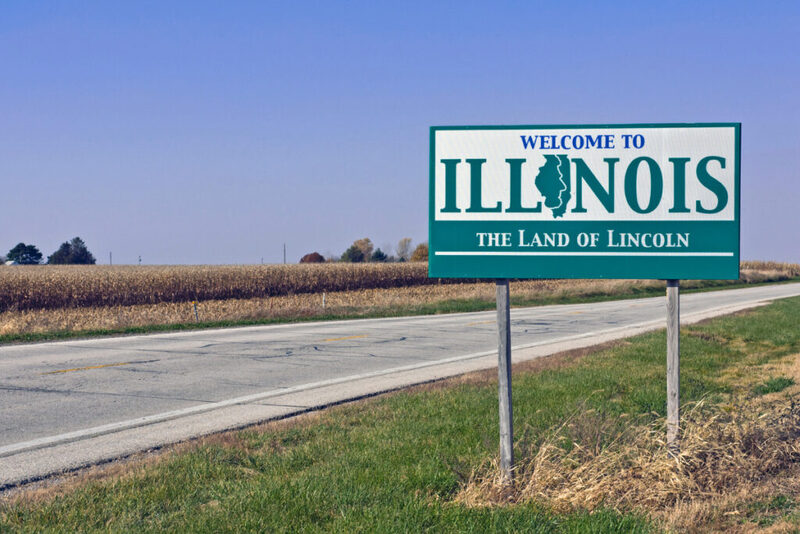
In Illinois, all vehicles have to be registered within 20 days of purchase. If you buy from a dealer in the “Land of Lincoln,” (it’s a sore subject to mention that he was born and raised in Kentucky) they are required to handle this for you, but if it’s a private sale, it’s your responsibility. New residents in Illinois have 30 days to register.
You can register by mail or in person at your local Secretary of State office . Illinois tags are renewed every year.
Illinois has the following minimum coverage requirements for auto insurance:
- Property damage liability: $20,000 per person
Registration fees are based on the weight of your RV. For motorhomes, fees range from $78 to $102; for trailers, they range from $18 to $50. You will also have to pay a $150 title fee.
If you buy an RV from a dealership in Indiana, the dealer will usually handle the registration for you. For a private sale, you can register online up to 45 days after purchase; after that point, you’ll have to go in person. New “Hoosier State” residents have 60 days to register and must do so in person.
You can make an appointment at the branch nearest you through the Indiana.gov website. Indiana tags are renewed every year.
Indiana has the following minimum coverage requirements for auto insurance:
- Uninsured/underinsured motorist bodily Injury: $25,000 per person; $50,000 per accident
- Uninsured motorist property damage: $25,000 per accident
The registration fee for an RV in Indiana is $29.35. You’ll also have to pay various state, county, and possibly municipal taxes.
In Iowa, if you buy your RV through a dealer, they can handle the registration process for you. New residents to the “Hawkeye State” have 30 days to register.
Registration is done in person at your local county treasurer’s office and Iowa tags are renewed every year.
Iowa has the following minimum coverage requirements for auto insurance:
- Bodily injury liability: $20,000 per person; $40,000 per accident
Registration fees for RVs are based on class, how old the model year is, and in the case of class A RVs: the suggested retail price. The price ranges for each class are Class C: $80 to $110; Class B: $65 to $90; Class A: $85 to $400.
The fees for travel trailers are based on square footage and age. Trailers between 1 and 6 years old pay $0.30 per square foot. If the trailer is any older than that, you’ll pay 75% of this rate.

Any RV bought in Kansas should be registered within 60 days of purchase. If you buy through a dealership, they can handle this for you. New “Sunflower State” residents have 90 days to register.
Registration is done in person at your local county treasurer’s office . Kansas tags are renewed every year.
Kansas has the following minimum coverage requirements for auto insurance:
- Uninsured/underinsured motorist liability: $25,000 per person; $50,000 per accident
- Personal injury protection: $4,500 per person for medical expenses; $900 per month for one year for disability/loss of income; $25 per day for in-home services; $2,000 for funeral/burial/cremation expenses; $4,500 for rehabilitation expenses
Registration fees will depend on the county you live in. Contact your local county treasurer’s office to get an estimate of the fees you’ll owe.

Whether you just bought or are a new resident, Kentucky doesn’t give a specific timeframe to register your RV. But, you’ll still need to complete this process before you can get on the road.
Registration is done in person at your local county clerk’s office . “Bluegrass State” tags are renewed yearly.
Kentucky has the following minimum coverage requirements for auto insurance:
Kentucky will also allow you to have a single policy with a limit of $60,000 in lieu of these coverages.
Registration fees will depend on your county. You’ll need to contact your local county clerk’s office for exact fees and taxes.
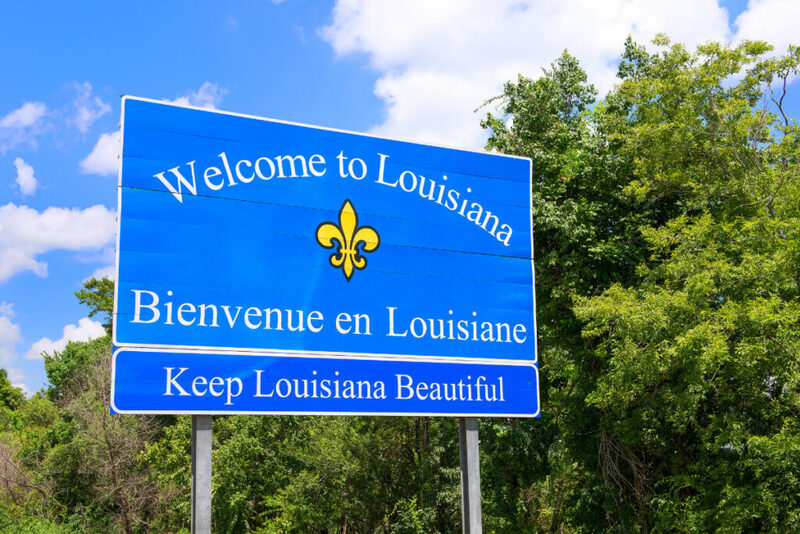
In Louisiana, you have to register your RV within 40 days of purchase which can be done by a dealer if you buy through a dealership. New residents of the “Pelican State” have 30 days to register.
Registration can be done by mail or in person at your local Office of Motor Vehicles . In Louisiana, motorhome tags are renewed every two years. Trailers can be registered for 1 year, 4 years, or permanently.
Louisiana has the following minimum coverage requirements for auto insurance:
- Bodily injury liability: $15,000 per person; $30,000 per accident
Registration fees in Louisiana depend on the type and value of your vehicle. For a motorhome, some common fees include:
- $68.50 title fee
- $8.00 handling fee
- $50.00 registration fee
Additionally, you’ll pay 0.1% of your vehicle’s value per year of registration. The exact fees and taxes you pay will depend on where you live. Contact your local OMV office to get a more exact estimate.
In Maine, a dealership cannot complete your RV registration for you. It’s your responsibility to register your vehicle whether it’s from a dealership or a private sale. For new “Pine Tree State” residents, you have 30 days to register your vehicle.
The Maine Bureau of Motor Vehicles gives specific instructions for registering both camper trailers and motorhomes on their website.
Registration is done in person at your local municipal office if your municipality participates in the registration program. If they don’t, you’ll have to go to a BMV branch office . Maine tags are renewed yearly.
Maine has the following minimum coverage requirements for auto insurance:
- Uninsured/underinsured motorist coverage: $50,000 per person; $100,000 per accident
- Medical payments coverage: $2,000 per person
Maine RV registration fees are based on the type of vehicle and weight. Motorhome registration fees in Maine start at $21 and go up from there. For trailers up to 2,000 pounds, the cost is $21 to register and $40 if it’s over 2,000 pounds.
In Maine, you will also have to pay the excise tax for your vehicle. You can get more information from your local municipal office.
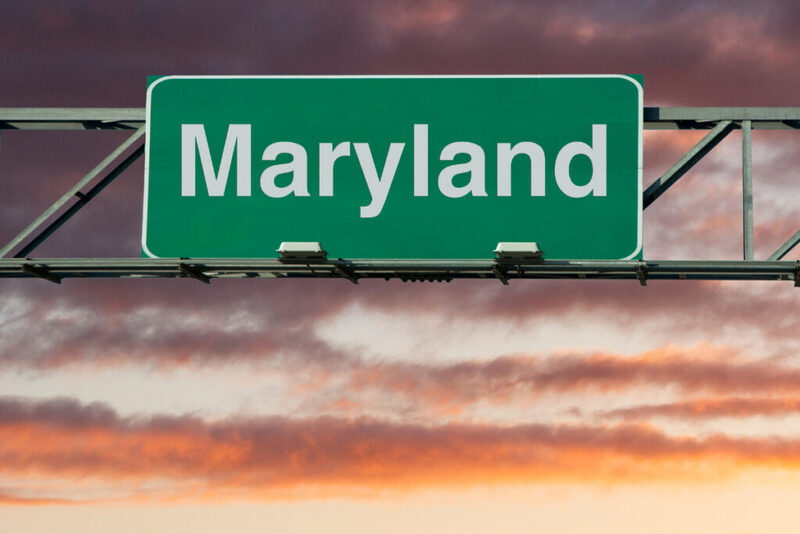
Home to Chesapeake Bay, blue crabs, the city of Baltimore, and RVBlogger- Welcome to Maryland! If you buy an RV from a dealership in the “Free State,” the dealer will usually complete the registration process for you. If you’re a new Maryland resident , you have 60 days to register your rig.
New residents can complete their registration by mail. In other situations, you’ll have to go make an appointment at your local Motor Vehicle Administration office. Maryland tags can be registered for one or two years at a time.
Used vehicles will need to pass a vehicle inspection to be able to register.
Maryland has the following minimum coverage requirements for auto insurance:
- Bodily injury liability: $30,000 per person; $60,000 per accident
Maryland RV registration fees are based on the vehicle type and weight. For a motorhome, you’ll pay $135 if it’s under 3,700 pounds and $187 if it’s over. For a trailer, the fees are:
- 3,000 pounds or less – $51
- 3,001 pounds to 5,000 pounds – $102
- 5,001 pounds to 10,000 pounds – $160
- 10,001 pounds to 20,000 pounds – $248
You also may have to pay a 6% excise tax on your vehicle.
Massachusetts
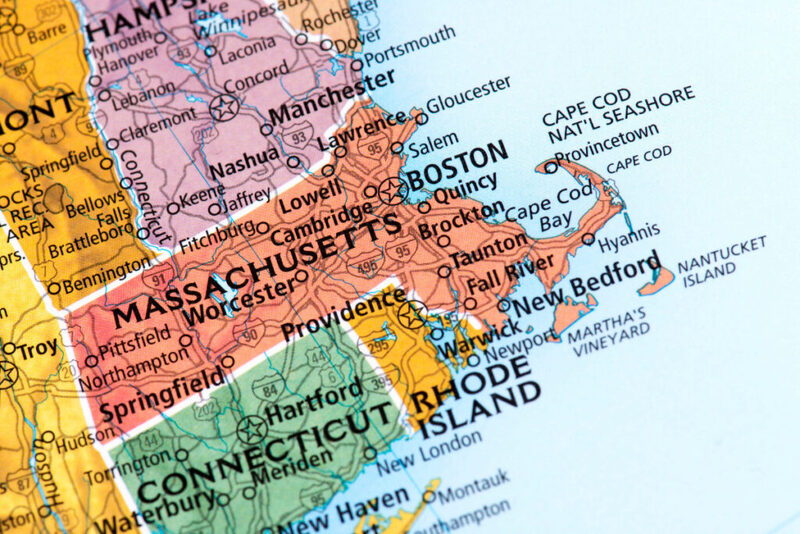
In Massachusetts, a dealership cannot complete your RV registration for you, so you’ll have to complete the registration yourself . New Massachusetts residents should register as soon as they establish residency.
Registration is done in person at your local Registry of Motor Vehicles office and you’ll have to make an appointment first. The “Bay State’s” tags are renewed every one or two years, depending on the type of plate.
Massachusetts has the following minimum coverage requirements for auto insurance:
- Personal injury protection: $8,000 per person, per accident
- Uninsured motorist coverage : $20,000 per person; $40,000 per accident
Massachusetts RV registration fees are based on vehicle type and, sometimes, weight. A motorhome is registered as an “auto home” and the fee is $50. For trailers, you will be charged $20 for every 1,000 pounds of weight.
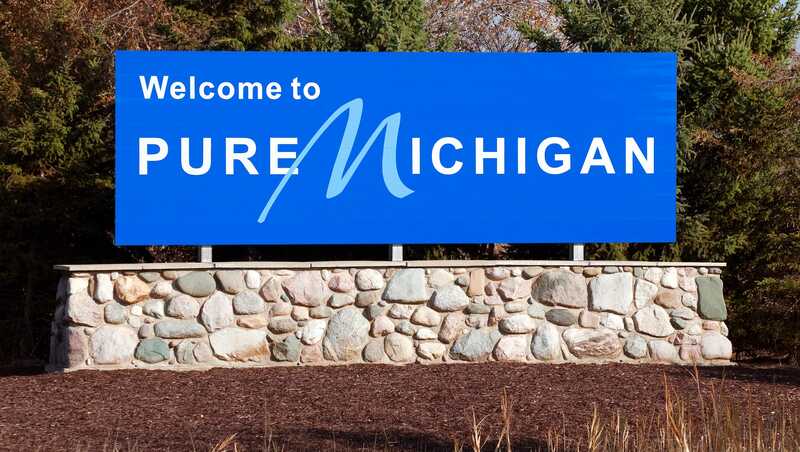
If you purchase your RV in Michigan, you must register it within 15 days. If you buy from a dealership, they’re required to process this for you. New residents of the “Great Lakes State” are required to register their rigs immediately.
Registration is done in person at your local Secretary of State branch office . You can schedule an appointment, but it’s not required. Michigan tags are renewed every year.
Michigan has the following minimum coverage requirements for auto insurance:
- Personal injury protection: $250,000 per person per accident
- Property protection: $1 million
- Uninsured motorist bodily injury : $20,000 per person; $40,000 per accident
Michigan RV registration fees are based on the manufacturer’s suggested retail price for the vehicle; for trailers, it is based on the weight. There’s a fee calculator to help you estimate on the Michigan Department of State website.
If you purchase an RV from a dealership in Minnesota, the dealer can register your vehicle for you. New residents of the “North Star State” should register their RV within 60 days of making the move.
Registration can be done by mail or in person at your local Driver & Vehicle Services office .
Minnesota has the following minimum coverage requirements for auto insurance:
- Personal injury protection: $40,000 per person per accident
- Uninsured/underinsured motorist bodily injury : $25,000 per person; $50,000 per accident
Minnesota RV registration fees are $15.50 for both RVs and trailers. You’ll also have to pay a registration tax based on the age and value of your vehicle. To get more information on this tax, you can contact your local deputy registrar.
Mississippi
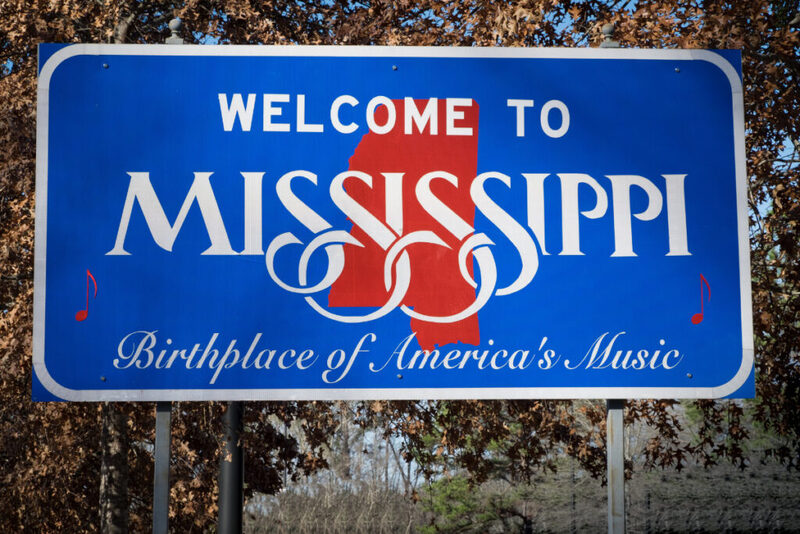
If you purchase an RV from a dealer in Mississippi, they’ll handle the registration for you. Private sales should be registered within seven business days. New residents of the “Magnolia State” have 30 days to register.
Vehicle registration in Mississippi is handled by the Mississippi Department of Revenue. You’ll register your RV in person at your local tax collector’s office. Mississippi tags are renewed yearly.
Mississippi has the following minimum coverage requirements for auto insurance:
To register your RV in Mississippi, you’ll pay a $12.75 registration fee, as well as various taxes. Taxes are based on the type and value of your vehicle and where you live.
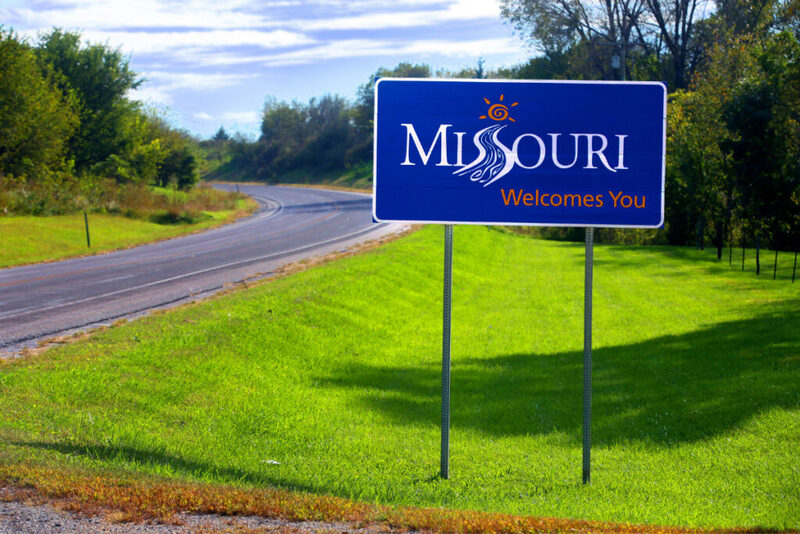
In Missouri, your RV must be registered within 30 days of purchase. If it’s a sale through a dealership, the dealer cannot do this for you. New Missouri residents also have 30 days to register.
Registration is done in person at your local license office . The “Show Me State” tags are registered for one or two years at a time. Your RV may need to complete a safety inspection to be registered.
Missouri has the following minimum coverage requirements for auto insurance:
- Uninsured motorist coverage: $25,000 per person; $50,000 per accident
The registration fee for RVs in Missouri is $32.25 plus a $6 processing fee per year. So, if you register your RV for two years, you’ll pay $64.50 plus a $12 processing fee.
Trailers can be registered for one year, three years, or permanently. The costs are:
- $7.50 for one year
- $22.50 for three years
- $52.50 for a permanent registration
You may also have to pay certain taxes when you register your RV. The Missouri Department of Revenue has a tax calculator you can use to estimate this.
When you purchase an RV from a dealership in Montana, the dealer can start the registration process for you. However, you’ll still have to complete the registration yourself. If you’re a new resident to the “Big Sky Country State,” you’ll have 60 days to register.
Registration is done in person at your local county treasurer’s office . You can register your RV for one or two years at a time. If you have a motorhome that’s over 11 years old or any travel trailer, permanent registration is also available.
Montana has the following minimum coverage requirements for auto insurance:
- Property damage liability: $20,000 per accident
Montana RV registration fees for motorhomes are based on the age of the vehicle. The fee schedule is:
- Less than 2 years old – $282.50
- Between 2 and 5 years old – $224.25
- Between 5 and 8 years old – $132.50
- 8 years old or older – $97.50
- 11 years old or older (permanent registration) – $237.50
There is an additional 3% administrative fee on these amounts. You’ll also be charged $25.75 in other fees.
For travel trailers, the registration fee is based on length. You’ll pay $72 for TTs under 16 feet and $152 travel trailers over 16 feet.
Welcome to Nebraska! You’ll have to register your RV within 30 days of purchase in the “Cornhusker State,” whether it’s from a dealer or a private sale. The dealership won’t do this for you. New residents of the cornhusking state also have 30 days to register.
Registration can be done by mail or in person at your local County Treasurer’s office . Nebraska tags are renewed yearly.
Nebraska has the following minimum coverage requirements for auto insurance:
- Uninsured/Underinsured motorist coverage: $25,000 per person; $50,000 per accident
To register an RV in Nebraska, you’ll have to pay $23.80 in registration fees , plus a “motor vehicle fee” and a “motor vehicle tax”. For motorhomes and trailers, these fees are based on weight and age.
If you buy an RV from a dealership in Nevada, you can register it completely online. This should be done before your temporary placard expires. If you go through a private sale, you have 30 days to register your rig in the “Silver State.”
Registration is done in person at your local DMV office and you’ll need to make an appointment to register. Nevada tags are renewed yearly. Prior to registering your RV, your rig may be required to do an emissions test .
Nevada has the following minimum coverage requirements for auto insurance:
In Nevada, you’ll pay a $33 registration fee for a motorhome or $27 for a trailer, plus some other fees and taxes. The Nevada DMV has a fee calculator to estimate the exact amount you’ll pay.
New Hampshire
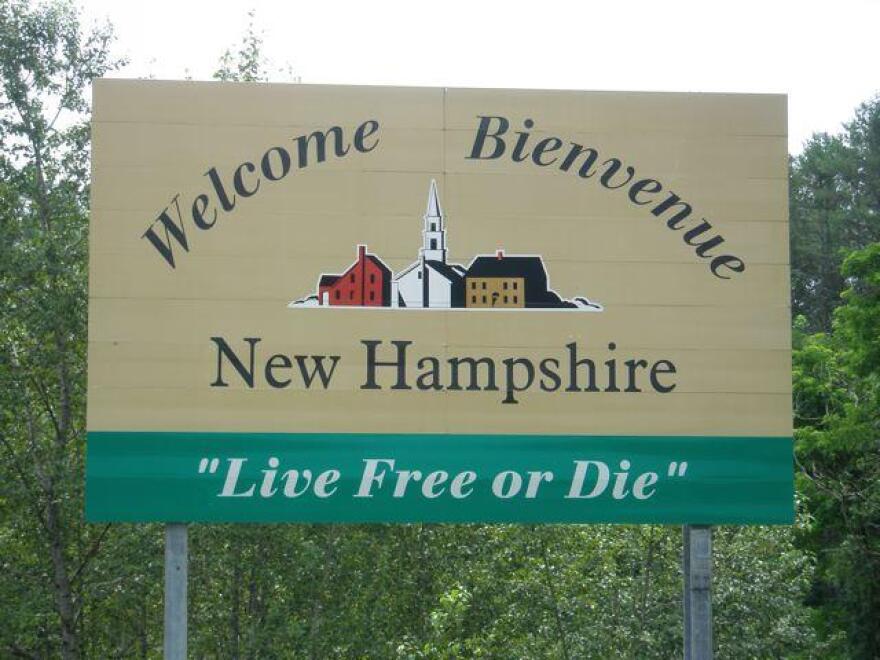
When you buy an RV through a dealer in New Hampshire, you’ll receive a 20-day temporary plate . If you go through a private sale, you can also get a temporary plate from a DMV. You’ll need to register your RV before this plate expires. New residents of the “Granite State” have 60 days to register.
Vehicle registration in New Hampshire is a two-part process. The first part is handled by the town or city clerk where you live. The second part is typically done with the state; however, your town or city clerk may be able to do this part for you.
You’ll have to register your RV in person at the clerk’s office . New Hampshire tags are renewed yearly. You will also need to have a vehicle inspection and an emissions test done as part of the RV registration process.
New Hampshire has the following minimum coverage requirements for auto insurance:
- Medical payments coverage: $1,000 per accident
In New Hampshire, you’ll have to pay registration fees to both the state and your municipality. For the state, fees are based on weight. You’ll have to contact your municipality to find out the fees they’ll charge.
When you buy an RV from a dealership in New Jersey, they’ll usually handle the registration for you. For private sales, you’ll have to register within just 10 days. New residents have 60 days to register.
You’ll have to register in person at your local Motor Vehicle Commission office. No walk-ins are accepted, so you’ll have to make an appointment . The “Garden State’s” tags are renewed yearly.
The New Jersey MVC has specific instructions on their website for how to register a motorhome , as well as a trailer . However, the process is more or less the same as for any other vehicle.
You’ll have to pass a vehicle inspection to register your RV. Inspections aren’t just a one-time thing in this state, You’ll need to do inspections every two years and every five years for new vehicles.
New Jersey has the following minimum coverage requirements for auto insurance:
RV registration fees in New Jersey are based on your vehicle’s age and weight. Fees range from $35.50 to $84.00
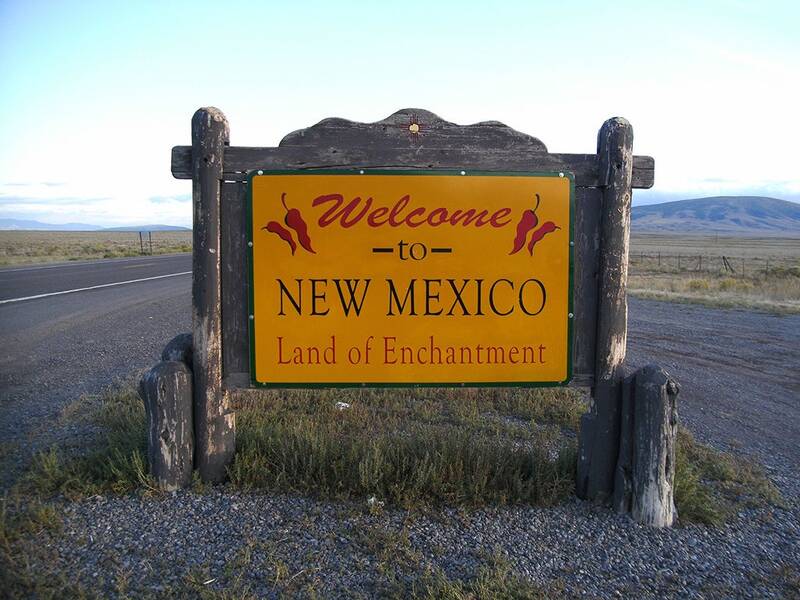
Whether your RV purchase is from a dealer or a private sale, you’ll have to complete the registration process yourself in New Mexico. Vehicles must be registered within 30 days of purchase. New residents have 60 days to register their RV in the “Land of Enchantment”.
You’ll have to register in person at your local Motor Vehicle Division office . You can register your RV for one or two years at a time.
New Mexico has the following minimum coverage requirements for auto insurance:
New Mexico RV registration fees are based on the weight and age of your vehicle. They range from $27 to $62 for one-year registrations and from $54 to $124 for two years.
If you buy your RV from a dealership in New York State, the dealer can handle the registration for you. You must register your vehicle within 180 days of your auto insurance’s effective date. New residents have 30 days to register their RV in the “Empire State.”
You’ll register in person at your local DMV and you can make a reservation to do so online. Vehicles in New York State can be registered for one or two years at a time. In NY, you’ll have to go through safety and emissions inspections as a part of the registration process. Plus, to maintain your RV registration, you have to do a new inspection every 12 months.
New York has the following minimum coverage requirements for auto insurance:
NY RV registration fees depend on the weight of your vehicle and where you live. You can estimate your registration fees using a calculator on the NY DMV website.
North Carolina
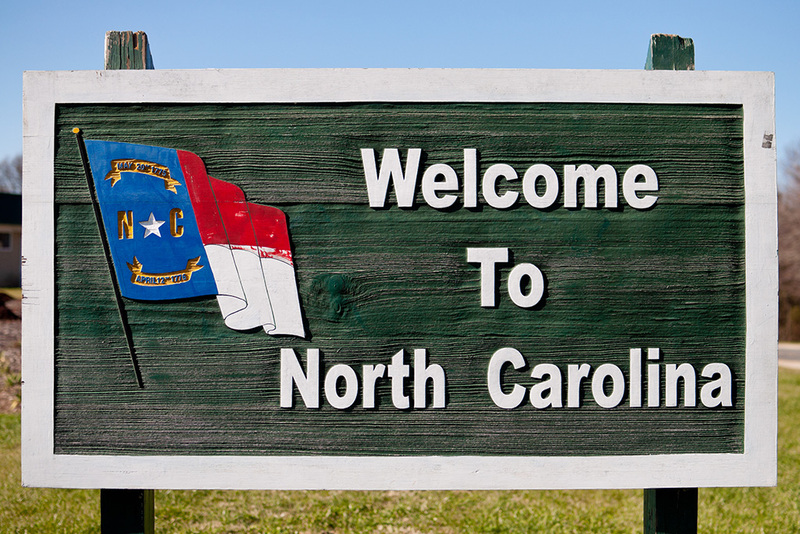
Whether you buy an RV from a dealer or a private sale in North Carolina, you’ll have to complete the registration process yourself. New residents of the “Tar Heel State” have 30 days to register.
In NC, you’ll register in person at your local DMV office . Appointments are available, but not required. North Carolina tags are renewed every year. Your RV will have to pass a safety inspection before you can register it. Plus, you’ll have to repeat the inspection for every renewal annually . Certain counties also require an emissions inspection.
North Carolina has the following minimum coverage requirements for auto insurance:
In North Carolina, you’ll pay various fees to title and register your vehicle. These will depend on the type of vehicle and where you live. You’ll also pay a highway use tax at 3% of your vehicle’s value, up to $250 max.
North Dakota
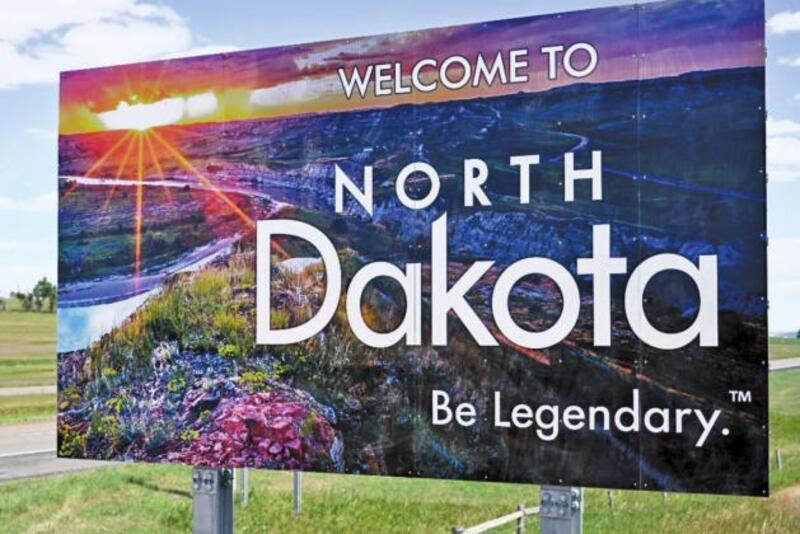
Welcome to North Dakota! In this state, you’ll have to complete your RV registration yourself whether you buy from a dealer or it’s sold through a private sale. However, if you buy from a dealer, you will receive a 75-day temporary registration.
The “Peace Garden State” doesn’t stress you out with a specific timeframe to register for new residents, but be sure to register it before heading out on your RV vacation.
Here you’ll register your RV in person at your local Department of Transportation office . North Dakota tags are renewed yearly.
North Dakota has the following minimum coverage requirements for auto insurance:
RV registration fees in North Dakota are based on the age and weight of the vehicle.
In Ohio, you’re required to register your RV yourself, regardless of the situation. New Ohio residents have 30 days to register.
You’ll register in person at your local deputy registrar license agency . RVs in the “Buckeye State” are eligible for multi-year registration for up to five years at a time. In Ohio, you may be required to complete an emissions test , depending on where you live and your RV’s model year.
Ohio has the following minimum coverage requirements for auto insurance:
The Ohio registration fee for a motorhome is $46; for trailers, this fee is based on weight. You’ll also have to pay a deputy registrar fee ranging from $5 to $15.
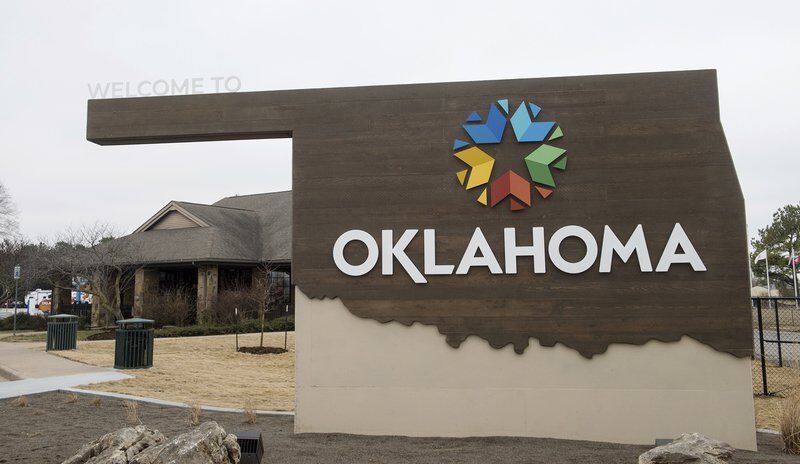
Whether you buy an RV from a dealer or a private sale in Oklahoma, you’ll need to complete the registration process yourself within 30 days of purchase. New “Sooner State” residents also have 30 days to register.
Registration is done in person at your local Oklahoma Tax Commission office or at your local tag agency. Oklahoma RV tags are renewed yearly.
Oklahoma has the following minimum coverage requirements for auto insurance:
Oklahoma charges a flat registration fee of $96, plus an $11 title fee or a $17 title transfer fee. You may also need to pay excise and/or sales tax based on the purchase price of your RV.
If you buy your RV from a dealership in Oregon, they can complete the registration process for you. Whether the dealership registers your rig or you do, the process should be done within 30 days of purchase. New Oregon residents also have 30 days to register.
You can register by mail or in person at your local DMV. You’ll need to make an appointment if you go in person. Oregon tags are renewed every two years.
The “Beaver State” has the following minimum coverage requirements for auto insurance:
- Personal injury protection: $15,000 per person
- Uninsured motorist coverage: $25,000 per person; $50,000 per accident for bodily injury
In Oregon, you’ll pay RV registration fees based on vehicle type, age, and gas mileage. If you’re a resident of Multnomah, Washington, or Clackamas County, you’ll also pay some extra fees.
Pennsylvania
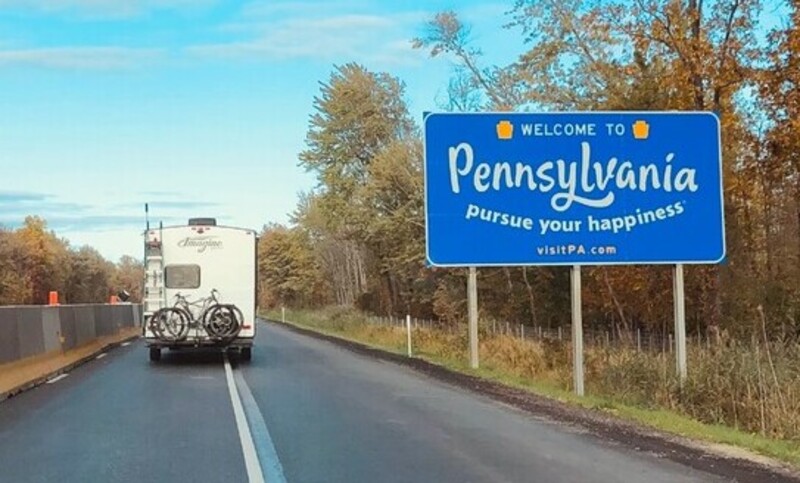
In Pennsylvania, when you buy an RV through a dealership, they should complete the registration process for you. New Pennsylvania residents have 20 days to register.
You’ll register in person at a PennDOT office . Pennsylvania plates are renewed every year. You’ll have to complete a safety inspection and, in some cases, an emissions inspection to register your RV.
The “Keystone State” has the following minimum coverage requirements for auto insurance:
For motorhomes and trailers in Pennsylvania, registration fees are based on weight.
Rhode Island
If you buy your RV from a dealership in Rhode Island, they can handle the registration process for you. New Rhode Island residents have 30 days to register. You’re only required to title vehicles that are from 2001 and newer.
You’ll register in person at your local DMV office . You might need an appointment depending on what office you go to. Rhode Island tags are renewed every two years. You’ll need to go through a safety and emissions inspection to register your vehicle in the “Ocean State.” If you’re bringing an RV from out of state, you’ll also need to do a VIN check at your local police department.
Rhode Island has the following minimum coverage requirements for auto insurance:
- Uninsured/underinsured motorist coverage: $25,000 per person; $50,000 per accident; $25,000 of property damage coverage
RV registration fees in Rhode Island are based on the weight of your RV.
South Carolina
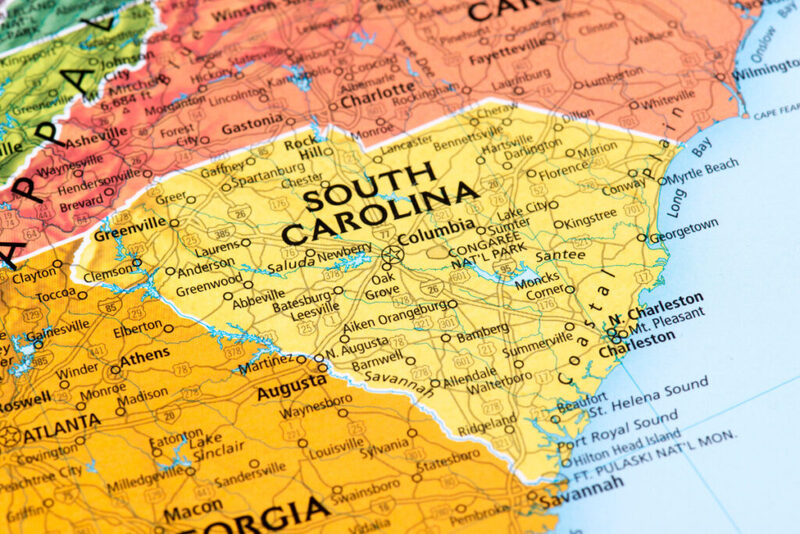
In South Carolina, you have to register your RV within 45 days of purchase. If you buy your RV from a dealer, they will generally take care of the registration process for you. New South Carolina residents also have 45 days to register.
You can register by mail or in person at your local DMV office . South Carolina tags are renewed every two years.
The “Palmetto State” has the following minimum coverage requirements for auto insurance:
- Uninsured motorist coverage: $25,000 per person; $50,000 per accident; $25,000 of property damage coverage
In South Carolina, you’ll pay a flat RV registration fee of $40 for a motorhome and $10 for a trailer.
South Dakota
There’s a reason you see so many South Dakota plated RVs roaming about the country (and Mexico)!
You have 45 days after purchase to register your RV in South Dakota. If you go through a dealership, they can handle this for you. New South Dakota residents have 90 days to register.
Registration is done in person at your local county treasurer’s office . South Dakota tags are renewed yearly.
The “Mount Rushmore State” has the following minimum coverage requirements for auto insurance:
In South Dakota, registration fees for RVs are based on age and weight.
Whether you buy your RV from a dealer or a private sale in Tennessee, you’ll have to complete the registration process yourself. Tennessee doesn’t give a specific timeframe to register for new residents or new purchases.
Registration is done in person at your local county clerk’s office . Tennessee tags are renewed every year.
The “Volunteer State” has the following minimum coverage requirements for auto insurance:
Tennessee charges a flat $26.50 RV registration fee . However, you may also have to pay additional fees depending on the county you live in.
If you buy an RV from a dealer in Texas, they’re required to handle the registration process on your behalf. For private sales, you’ll need to register your RV within 30 days of purchase. New Texas residents also have 30 days to register.
You’ll register your RV in person at your local county tax office . Texas tags are renewed every year. You’ll have to pass a safety inspection and in some cases an emissions inspection to register your vehicle in Texas.
The “Lone Star State” has the following minimum coverage requirements for auto insurance:
Texas also requires the following coverages, but you can reject them in writing:
- Personal injury protection: $2,500 per person
- Uninsured/underinsured motorist coverage: $30,000 per person; $60,000 per accident; $25,000 property damage coverage
To register an RV in Texas, you’ll pay $51.75 in registration fees, plus any other county fees.
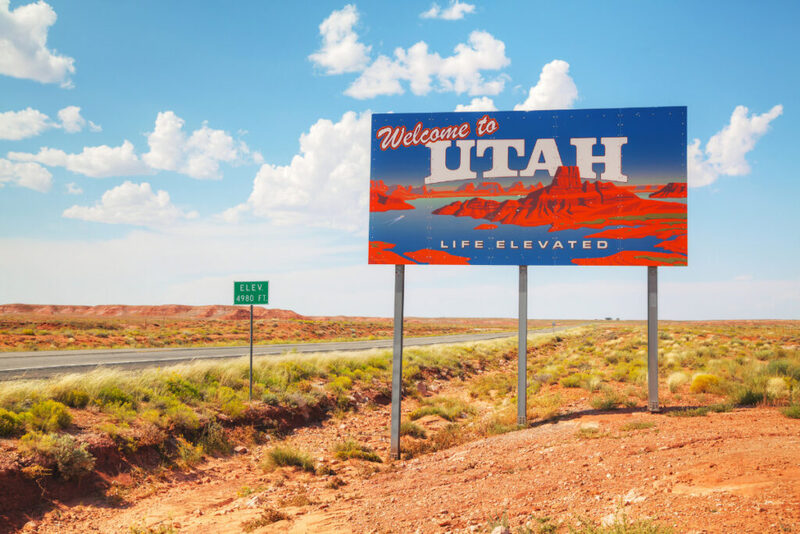
If you buy an RV from a dealership in Utah, they can handle the registration process for you. New residents to the “Beehive State” have 60 days to register.
You’ll register in person at your local DMV office and keep in mind that some offices require an appointment. Utah tags are renewed every year.
In some cases, you might need to complete a safety and/or emissions inspection to be able to register your rig in Utah.
Utah has the following minimum coverage requirements for auto insurance:
- Bodily injury liability: $25,000 per person; $65,000 per accident
- Personal injury protection: $3,000 per accident
Utah also requires uninsured/underinsured motorist coverage, but this can be rejected in writing.
In Utah, you’ll pay RV registration fees based on your vehicle type, weight, age, as well as the county you live in. You’ll need to contact the DMV to find out the exact amounts.
If you buy your RV from a dealership in Vermont, they’re required to take care of the registration process for you. New Vermont residents have 60 days to register.
You can register by mail or in person at your local DMV office . If you go in person, you’ll need to schedule an appointment . You can register a vehicle in the “Green Mountain State” for one or two years at a time.
Vermont has the following minimum coverage requirements for auto insurance:
- Uninsured/underinsured motorist coverage: $50,000 per person; $100,000 per accident; $10,000 of property damage coverage.
In Vermont, you’ll pay RV registration fees based on your vehicle’s type and what kind of fuel it uses. Fees for trailers are based on weight.
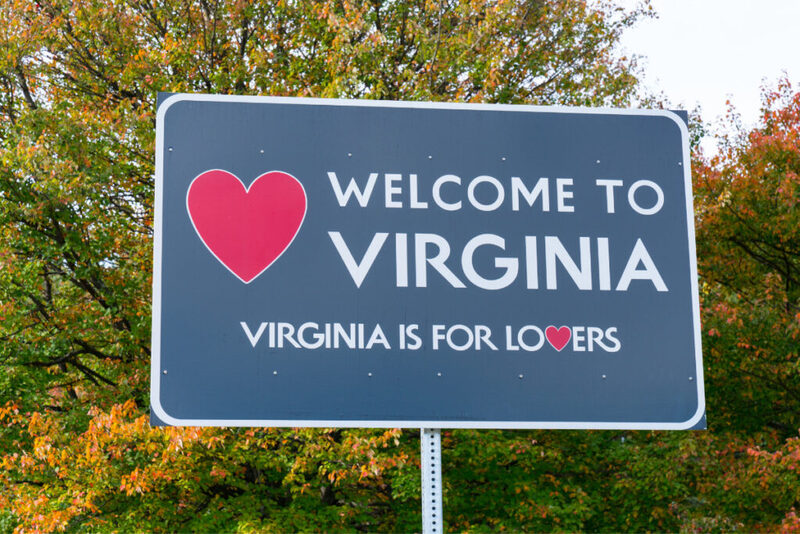
Welcome to the state for lovers! If you buy your RV from a dealership in Virginia, the dealer can complete the registration process for you. New Virginia residents have 30 days to register.
You can register your RV by mail or in person at your local DMV office . Vehicles in the “Old Dominion State” can be registered for one, two, or (in some cases) three years at a time. For some people, you may need to pass an emissions inspection to be able to register in Virginia.
Virginia has the following minimum coverage requirements for auto insurance:
RV registration fees in Virginia are based on the type and weight of your vehicle. They’ll range from $30.75 to $35.75 for motorhomes and $18 to $40 for trailers.
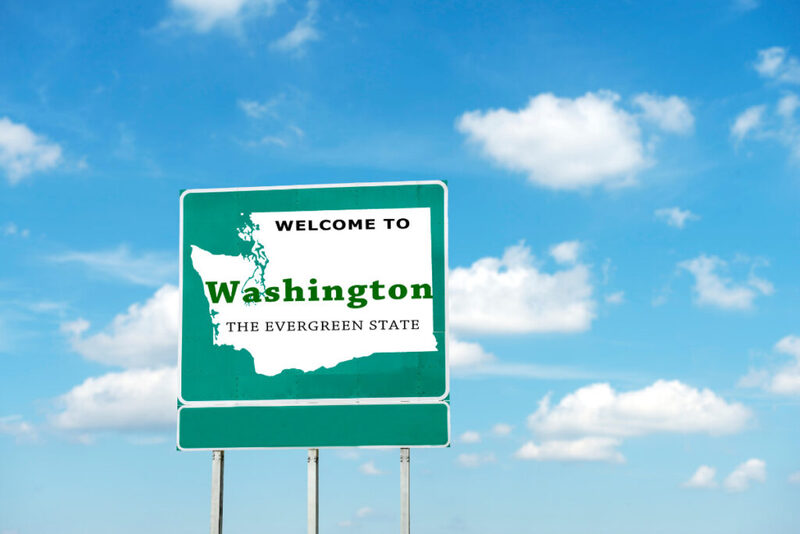
When you buy an RV from a dealership in Washington state, they’ll handle the registration process for you. For a private sale , you have 15 days to register your new-to-you RV. New to Washington residents have 30 days to register.
You can register by mail or in person at your local vehicle licensing office . Washington tags are renewed every year. In some cases, you may need to pass an emissions inspection to be able to register your rig.
The “Evergreen State” has the following minimum coverage requirements for auto insurance:
In the Evergreen State, you’ll pay RV registration fees based on the type of vehicle. You’ll also pay some other fees depending on where you live and your vehicle’s value.
Washington, DC
Whether you buy your RV from a dealer or a private sale in Washington, District of Columbia (D.C.), you’ll have to handle the registration yourself. This registration process will need to be completed within 60 days of purchase. New Washington, D.C. residents also have 60 days to register.
RV registration is done in person at a DMV Service Center . D.C. tags are renewed every year. In Washington, D.C., your RV will need to pass a vehicle inspection to be able to be registered.
“The District” has the following minimum coverage requirements for auto insurance:
- Uninsured motorist coverage: $25,000 per person; $50,000 per accident; $5,000 property damage coverage
In the District of Columbia, you’ll pay RV registration fees based on the weight of your vehicle.
West Virginia
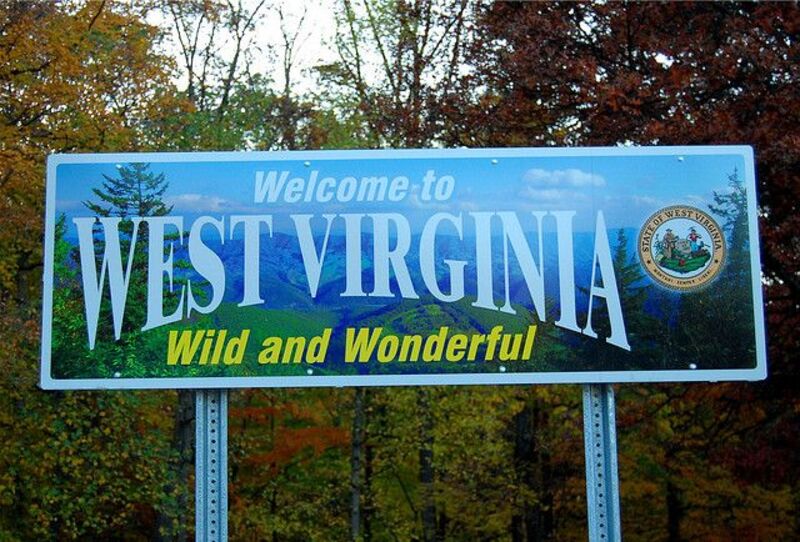
If you buy your RV from a dealer in West Virginia, they’re required to handle the registration process for you. New to West Virginia residents have 30 days to register.
In West Virginia, you’ll register your RV in person at your local DMV office . You can schedule an appointment , but it’s not required. West Virginia tags are renewed every year, but trailers are registered for three years at a time. Prior to registering, your RV will need to pass a safety inspection .
West Virginia has the following minimum coverage requirements for auto insurance:
In the “Mountain State,” you’ll pay $76.50 in registration fees for an RV. The fees for a trailer adjust according to where you fall in the three-year registration cycle.
If you buy an RV from a dealer in Wisconsin, they are required to complete the registration process for you. New Wisconsin residents should register as soon as they establish residency.
You can register online, by mail, or in-person through a licensed third party . Wisconsin does not currently handle in-person registrations at DMV service centers. Wisconsin tags are renewed every year. In some cases, you may need to complete an emissions test to be able to register.
The “Badger State” has the following minimum coverage requirements for auto insurance:
Wisconsin RV registration fees are based on the type and weight of your vehicle.
Whether you buy your RV through a dealer or a private sale in Wyoming, you’ll need to complete the registration process yourself. New Wyoming residents should register as soon as they establish residency.
You’ll register your RV in person at your local county clerk’s office . Wyoming tags are renewed every year.
The “Equality State” has the following minimum coverage requirements for auto insurance:
In Wyoming, you’ll pay RV registration fees based on the type and value of your vehicle.
Do Truck Campers Need to be Registered?
Most states don’t require truck campers to be registered or titled. The states consider them “cargo” in the pickup truck’s bed. The truck camper’s Certificate of Ownership or proper Bill of Sale has the correct information and counts as the camper’s official documentation.
If you check with your RV insurance company, your truck camper may even be covered through your truck’s insurance. We do recommend learning the details of your truck’s insurance if you go that route. If something happens, the truck camper may not have the coverage you want compared to an actual RV insurance policy.
The States below require truck campers to be registered and/or titled (Yes= +)
What is the Best State to Register a Motorhome?
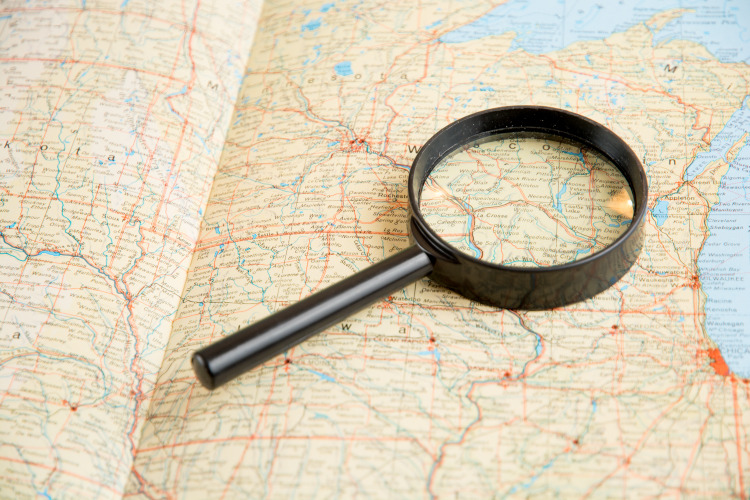
If you live in your RV full-time, you might not consider any state your permanent home. But no matter how much you travel, you’ll still need to register your RV somewhere. And in most cases, you’ll need to be a legal resident (a.k.a. domicile) of a state to register your RV there.
Some of the main things to consider when deciding where to register your RV are:
- Taxes on things like your income, investments, and personal property
- Fees to title, register, and renew your registration
- How often you renew your vehicle(s) registration
- Cost of insurance
- Requirements for establishing residency
Ideally, you want a state with low taxes and fees, affordable insurance, easy renewal (and/or a long registration period), and low requirements to become a resident.
Wherever you choose, you’ll need to return to the state occasionally for renewals and other things. It’s also good to pick a state that’s easy to get to in your RV. That means Hawaii and Alaska are off the list.
With these things in mind, there are three states that are generally considered the best to register your motorhome or travel trailer. They are Florida, Texas, and South Dakota.
The Sunshine State is a popular destination for RVers in general (especially in the winter). So it’s no surprise Florida is also a popular place to register your RV as well.
Florida is a popular choice because it has no income tax and a relatively low sales tax of 6% (This doesn’t include individual county, property, and tourist additions).
You can also renew your tags online; every other driver’s license renewal can be done online as well. Because a Florida driver’s license is good for 8 years, you’d only need to go to the DMV in-person once every 16 years.
Besides these benefits, Florida residents also get discounts on passes and tickets to Disney and other theme parks (resident vs. out-of-state). And of course, there’s also Florida’s 1,350 miles of coastline for beach lovers to enjoy.
The biggest downside to Florida is that establishing residency is not especially easy.
The “Lone Star State” is one of the most popular states for RVers and for good reason.
Texas is popular because it has no income tax or personal property tax. There is also no inheritance or estate tax. Texas registration fees are also fairly low.
Plus, Texas is also the headquarters of Escapees RV Club , one of the country’s largest RV clubs. They provide tons of services to RVers such as mail forwarding and member discounts.
You can renew your vehicle tags and driver’s license online in Texas. If you do need to return to do business in person, it’s fairly central and easy to get to. Plus, establishing residency in Texas isn’t too complicated.
The biggest downside for Texas is that you’ll be required to complete an annual vehicle inspection to renew your tags. That means you’ll need to return in person at least once a year.
The absolute best state to register your RV is generally considered to be South Dakota. This is for a few reasons.
Like Florida and Texas, South Dakota has no income tax. There is also no tax on personal property, pensions, or inheritances. South Dakota also has an extremely low sales tax of only 4.5%.
South Dakota also benefits from low registration fees and insurance rates. Plus, tags can be renewed online, as well as every other driver’s license renewal.
If you do need to return in person, South Dakota is centrally located. In fact, the geographic center of the U.S. is in South Dakota!
The best part about registering in South Dakota is how easy it is to establish residency. You can become a South Dakota resident after spending only one night there!
What Paperwork Will I Need to Register My Camper or RV?

When you register your RV, you’ll need to provide various documents and fill out certain paperwork. The exact things you’ll need depend on what state you’re registering in. However, there’s usually not a huge difference.
Let’s look at what you’ll commonly need to be able to register your RV.
The title is a document establishing you as the owner of your RV. While a title is always required to register a vehicle, titling and registration are usually handled at the same time. If you buy a vehicle in a private sale, you’ll transfer the title from the seller to yourself.
You’ll also need to provide some kind of proof of ownership, such as a bill of sale. Other states might require a Manufacturer’s Certificate of Origin.
Vehicle Registration Application Form
You’ll need to fill out a vehicle registration application to register your RV. For this form, you’ll have to provide information about your vehicle and some personal info.
Most states let you download a vehicle registration application online. In some cases, however, you can only get the form in person at a DMV.
Drivers License or Another Form of ID
You’ll need to provide some form of ID, usually a driver’s license, to prove your identity to the DMV. In some cases, you’ll need an in-state driver’s license. If you’re a new resident, update your ID first.
Proof of Insurance
You’ll need to meet your state’s insurance requirements to be able to register your vehicle. Your proof of insurance will usually be in the form of a card from your insurance company.
If your insurance company only creates electronic insurance cards, printing them out, the declaration page, or other forms may work. Ask the DMV personnel or completely read through the steps so you come fully prepared.
Proof of Passed Inspections
If you’re registering your RV in a state that does safety, emissions, or VIN inspections, you’ll need to prove you passed them. You’ll usually receive some kind of document from the office or entity that does the inspection.
For weight certifications, use the CAT Scale Locator Website or App to find an authorized scale in the area. They can weigh and give you a certified document the DMV will accept.
Odometer Disclosure Statement
An odometer disclosure statement is a document recording the mileage on the odometer at the time of sale. Odometer disclosures are generally required any time a vehicle from the model year 2010 or newer. Odometer disclosures are intended to protect you from odometer fraud .
You can obtain the necessary form at the DMV or online . The document directs you to which authority can certify the document. Some states allow notaries, police officers, certain vehicle dealership personnel, or others.
Out of State Title and Registration
If you move to a different state, you’ll usually need to provide your title and registration from the previous state you lived in. Then, you can change your title and registration to the state you now live in.
Wrapping-up RV Registration Rules by State
Whether you have a Class A motorhome, a van conversion, a fifth-wheel, or any other kind of RV, you’re going to have to register it to get on the open road. With our in-depth guide to RV registration rules in every state of the U.S.A., you’ll know how to do it, no matter where you live.
Before heading out to register your new or new-to-you RV, make sure you check all the requirements to register.
Save yourself the headache and time by bringing all the required documents such as your registration application, ID, and proof of insurance. If you’re moving, you’ll need your title and registration to update them.
The final part of registration is payment. Every state charges fees differently; different counties within the state will usually have their own fees too.
Once you’ve completed all these steps, you’ll be the proud owner of a legally titled and registered RV. Once you’re legal, there’s only one thing left to do: take your RV out on the road and start your adventure.
Related Reating:
35 biggest rv beginner mistakes to avoid, how to buy a used rv from a private seller in or out of state, 115 point rv inspection checklist (new or used), rv construction methods: which is best, best rvs and campers for beginners.
About the Author
Jennifer and Kendall are avid RVers and part-time van lifers who share their years of experience both as full-time RVers and nomads through writing.
Jenn and Kendall have explored Canada, the USA, and Mexico while RVing and living full-time in all 3 countries.
They have been fortunate to work not only as part of the RVBlogger team but also with RVLife, DIY RV, Camper Report, RV Magazine, Rootless Living, Vanlifers, and more.
They have also shared their RV experience through DashboardDrifters.com and are the founders of RVSpotDrop, a web service for full-time RVers.

1 thought on “RV Registration Rules by State”
I have a weird question. We took put a loan for an RV in WA state and all of our paperwork matches eachother. But the bank has a different RV name on their paperwork. Is the loan still valid? How do I check to see if the banks VIN matches ours without raising any glags?
Leave a Comment Cancel reply
Save my name, email, and website in this browser for the next time I comment.
- Maps & Directions
- Departments

Burnsville License Center 952-891-7850 [email protected]
Lakeville License Center 952-891-7878 [email protected]
Robert Trail License Center 651-480-1234 [email protected]
- Motor Vehicle Titles
- Motor Vehicle Registration Currently selected
Motor Vehicle Registration
The State of Minnesota requires all trailers that are on the streets or highways to be registered. Depending on the gross weight of the trailer, not all trailers are titled. Go to the Minnesota Department of Vehicle Services website for guidelines.
Locations ( see business hours )
in person.
- Burnsville License Center
- Lakeville License Center
- Robert Trail License Center
Reserve your appointment
DVS Now kiosks
The Minnesota Department of Vehicle Services provides DVS Now kiosks at participating Cub Foods. Find a DVS Now kiosk near you.
Drop box available
Registration can be renewed via the drop boxes located at each location.
Walk-ins available
Service and license centers are open for walk-ins.
Fees vary for both title transfers and registration according to classification and year of the vehicle.
Payment options
Cash, check, money orders, and credit or debit cards (Discover, Visa or MasterCard) are accepted. A 2.49-percent convenience fee is charged for credit and debit cards.
Tab renewal
Please bring the renewal notice that was mailed to the owner. If you don't have the renewal notice, you must:
- Own the vehicle and show a valid ID at the counter. If you are not on the title, you must have written permission from the owner to purchase tabs on their behalf.
- Provide the correct address. If you have a new address, ask to have your vehicle address updated.

Minnesotans who are registering, renewing license tabs or transferring ownership of motor vehicles and motorcycles will need to provide the following information:
- Name of insurance company
- Policy number
- Expiration date of the policy
- Motorcycle engine number
Renewal notices can be emailed instead of mailed. Ask about this option when you get to the counter.
Duplicate or replacement plates or tabs
Check status of tabs.
You can check on the status of your renewed tabs or plates on the Driver & Vehicle Services website .
Under Vehicle Services , select More Vehicle Services . Then, click Check My Plate/Sticker Order Status .
Report missing tabs
If you haven't received your renewal tabs more than two weeks after sending in payment, report you haven't received your tabs on the Driver & Vehicle Services website .
DVS will email you a verification letter to use as proof of registration until your tabs arrive.
Disability certificate and plates
You can also apply for disability license plates at all license centers. Cost of disability license plates is $19.
A temporary 90-day certificate will be issued at the time of application. Disability plates, placard or both will be mailed to you by the state.
Last updated: 4/9/2024 8:38 AM
- 1590 Highway 55
- Hastings, MN 55033
- Ph: 651-437-3191
- Toll free: 800-247-1056
- See all County buildings
- Sign up for E-News
- Accessibility
- Language Translation
- Job Opportunities
- Make a Payment
- Privacy Policy
Create a Website Account - Manage notification subscriptions, save form progress and more.
- Website Sign In
- Finance & Records
- Department of Motor Vehicles
Trailer Registration does not require an appointment and is walk-in only.
Utility & Snowmobile Trailer Registration
Effective July 1, 2003, trailer owners wishing to renew or apply for registration on small trailers are required to obtain permanent registration.
Homemade Trailer Form (PDF)
Registration Fees
Office of the Revisor of Statutes
2023 minnesota statutes.
- TRANSPORTATION
Chapter 168
Section 168.002.
- Authenticate
- Search Minnesota Statutes
- About Minnesota Statutes
- 2023 Statutes New, Amended or Repealed
- 2023 Table of Chapters
- 2023 Statutes Topics (Index)
- Table of Sections
- Full Chapter Text
- Version List
- All-terrain vehicles
- Asphalt concrete
- Cheese and cheese products
- Common carriers
- Cranes (machines)
- Dairy products
- Deputy registrars of motor vehicles
- Dollies (tools)
- Drivers licenses
- Earth-moving equipment
- Farm products
- Forest products
- Gross earnings taxes
- Heavy equipment
- License plates
- Lifts and hoists
- Manufactured homes
- Motor carriers
- Motor vehicle registration
- Motor vehicles
- Motorcycles
- Nonprofit organizations
- Public safety department
- Recreational vehicles
- School buses
- Scrap metal
- Snowmobiles
- Special transportation services
- Streetcar lines
- Streets and roads
- Travel trailers
- Weights and measures
- Wheelage taxes
- Wood and wood products
Recent History
- 2023 Subd. 12a New 2023 c 68 art 6 s 1
- 2021 Subd. 18 Amended 2021 c 5 art 4 s 28
- 2014 Subd. 15 Amended 2014 c 175 s 2
- 2012 Subd. 19 Amended 2012 c 287 art 3 s 15
- 2012 Subd. 20 Amended 2012 c 287 art 3 s 16
- 2011 Subd. 18 Amended 2011 c 107 s 88
- 2011 Subd. 21a New 2011 c 109 s 1
- 2011 Subd. 21b New 2011 c 109 s 2
- 2011 Subd. 24 Amended 2011 c 109 s 3
- 2011 Subd. 26 Amended 2011 c 109 s 4
- 2011 Subd. 40 Amended 2011 c 109 s 5
- 2010 Subd. 13 Amended 2010 c 382 s 36
- 2010 Subd. 31a New 2010 c 351 s 15
- 2009 Subd. 31 Amended 2009 c 86 art 1 s 90
168.002 DEFINITIONS.
Subdivision 1. words, terms, and phrases..
Unless the language or context clearly indicates that a different meaning is intended, the following words, terms, and phrases, for the purposes of this chapter, shall be given the meanings subjoined to them.

Subd. 2. All-terrain vehicle.
"All-terrain vehicle" has the meaning given in section 84.92, subdivision 8 .
Subd. 3. Application for registration; listing for taxation.
"Application for registration" shall have the same meaning as "listing for taxation," and when a motor vehicle is registered it is also listed.
Subd. 4. Bus; intercity bus.
(a) "Bus" means (1) every motor vehicle designed for carrying more than 15 passengers including the driver and used for transporting persons, (2) every motor vehicle that is (i) designed for carrying more than ten passengers including the driver, (ii) used for transporting persons, and (iii) owned by a nonprofit organization and not operated for hire or for commercial purposes, or (3) every motor vehicle certified by the Department of Transportation as a special transportation service provider vehicle and receiving reimbursement as provided in section 256B.0625, subdivision 17 .
(b) "Intercity bus" means any bus operating as a common passenger carrier over regular routes and between fixed termini, but excluding all buses operating wholly within the limits of one city, or wholly within two or more contiguous cities, or between contiguous cities and a terminus outside the corporate limits of such cities, and not more than 20 miles distant measured along the fixed route from such corporate limits.
Subd. 5. Commissioner.
"Commissioner" means the commissioner of the Minnesota Department of Public Safety.
Subd. 6. Dealer.
"Dealer" means any person, firm, or corporation regularly engaged in the business of manufacturing, or selling, purchasing, and generally dealing in new and unused motor vehicles having an established place of business for the sale, trade, and display of new and unused motor vehicles and having in possession new and unused motor vehicles for the purposes of sale or trade. "Dealer" also includes any person, firm or corporation regularly engaged in the business of manufacturing or selling, purchasing, and generally dealing in new and unused motor vehicle bodies, chassis mounted or not, and having an established place of business for the sale, trade and display of such new and unused motor vehicle bodies, and having in possession new and unused motor vehicle bodies for the purposes of sale or trade.
Subd. 7. Distributor.
"Distributor" means a person, firm, or corporation which has a bona fide contract or franchise with a manufacturer to distribute the new motor vehicles of that manufacturer to licensed new motor vehicle dealers, but does not include a dealer.
Subd. 8. Farm truck.
(a) "Farm truck" means all single-unit trucks, truck-tractors, tractors, semitrailers, and trailers used by the owner thereof to transport agricultural, horticultural, dairy, and other farm products, including livestock, produced or finished by the owner of the truck, and any other personal property owned by the farmer to whom the license for the truck is issued, from the farm to market, and to transport property and supplies to the farm of the owner. Trucks, truck-tractors, tractors, semitrailers, and trailers registered as "farm trucks" may be used by the owner thereof to occasionally transport unprocessed and raw farm products, not produced by the owner of the truck, from the place of production to market when the transportation constitutes the first haul of the products, and may be used by the owner thereof, either farmer or logger who harvests and hauls forest products only, to transport logs, pulpwood, lumber, chips, railroad ties and other raw and unfinished forest products from the place of production to an intermediate or final assembly point or transfer yard or railhead, which transportation may be continued by another farm truck to a place for final processing or manufacture located within 200 miles of the place of production and all of which is deemed to constitute the first haul of unfinished wood products; provided that the owner and operator of the vehicle transporting planed lumber shall have in immediate possession a statement signed by the producer of the lumber designating the governmental subdivision, section, and township where the lumber was produced and that this haul, indicating the date, is the first haul thereof. The licensed vehicles may also be used by the owner thereof to transport, to and from timber-harvesting areas, equipment and appurtenances incidental to timber harvesting, and gravel and other road-building materials for timber haul roads.
(b) "Farm trucks" shall also include only single-unit trucks that, because of their construction, cannot be used for any other purpose and are used exclusively to transport milk and cream en route from a farm to an assembly point or place for final manufacture, and for transporting milk and cream from an assembly point to a place for final processing or manufacture. This section shall not be construed to mean that the owner or operator of the truck cannot carry on usual accommodation services for patrons on regular return trips, such as butter, cream, cheese, and other dairy supplies.
Subd. 9. Final-stage manufacturer.
"Final-stage manufacturer" means a person, firm, or corporation which performs manufacturing operations on an incomplete motor vehicle or a van-type motor vehicle so that it becomes a type A, B, or C motor home.
Subd. 10. First year of life.
"First year of life" means the year of model designation of the vehicle, or, if there be no year of model designation, it shall mean the year of manufacture.
Subd. 11. First-stage manufacturer.
"First-stage manufacturer" means a person, firm, or corporation which manufactures, assembles, and sells new motor vehicles for resale in this state.
Subd. 12. Fleet.
"Fleet" means a combination of 50 or more vehicles and trailers owned by a person solely for the use of that person or employees of the person and registered in this state under section 168.127 . It does not include vehicles licensed under section 168.187 .
Subd. 12a. Full-service provider.
"Full-service provider" means a person who is appointed by the commissioner as both a deputy registrar under this chapter and a driver's license agent under chapter 171 who provides all driver services, excluding International Registration Plan and International Fuel Tax Agreement transactions. The commissioner is not a full-service provider.
Subd. 13. Gross weight.
(a) "Gross weight" means the actual unloaded weight of the vehicle, either a truck or tractor, or the actual unloaded combined weight of a truck-tractor and semitrailer or semitrailers, or of the truck-tractor, semitrailer and one additional semitrailer, fully equipped for service, plus the weight of the maximum load which the applicant has elected to carry on such vehicle or combined vehicles.
(b) The term gross weight applied to a truck used for towing a trailer means the unloaded weight of the truck, fully equipped for service, plus the weight of the maximum load which the applicant has elected to carry on such truck, including the weight of such part of the trailer and its load as may rest upon the truck.
(c) The term gross weight applied to school buses means the weight of the vehicle fully equipped with all fuel tanks full of fuel, plus the weight of the passengers and their baggage computed at the rate of 100 pounds per passenger seating capacity, including that for the driver. The term gross weight applied to other buses means the weight of the vehicle fully equipped with all fuel tanks full of fuel, plus the weight of passengers and their baggage computed at the rate of 150 pounds per passenger seating capacity, including that for the driver. For bus seats designed for more than one passenger, but which are not divided so as to allot individual seats for the passengers that occupy them, allow two feet of its length per passenger to determine seating capacity.
(d) The term gross weight applied to a truck, truck-tractor or a truck used as a truck-tractor used exclusively by the owner thereof for transporting unfinished forest products or used by the owner thereof to transport agricultural, horticultural, dairy and other farm products including livestock produced or finished by the owner of the truck and any other personal property owned by the farmer to whom the license for such truck is issued, from the farm to market, and to transport property and supplies to the farm of the owner, as described in subdivision 8, shall be the actual weight of the truck, truck-tractor or truck used as a truck-tractor or the combined weight of the truck-tractor and semitrailer plus the weight of the maximum load which the applicant has elected to carry on such vehicle or combined vehicles and shall be licensed and taxed as provided by section 168.013, subdivision 1c .
(e) The term gross weight applied to a truck-tractor or a truck used as a truck-tractor used exclusively by the owner, or by a for-hire carrier hauling exclusively for one owner, for towing an equipment dolly shall be the actual weight of the truck-tractor or truck used as a truck-tractor plus the weight of such part of the equipment dolly and its load as may rest upon the truck-tractor or truck used as a truck-tractor, and shall be licensed separately and taxed as provided by section 168.013, subdivision 1e , and the equipment dolly shall be licensed separately and taxed as provided in section 168.013, subdivision 1d , which is applicable for the balance of the weight of the equipment dolly and the balance of the maximum load the applicant has elected to carry on such combined vehicles. The term "equipment dolly" as used in this subdivision means a heavy semitrailer used solely by the owner, or by a for-hire carrier hauling exclusively for one owner, to transport the owner's construction machinery, equipment, implements and other objects used on a construction project, but not to be incorporated in or to become a part of a completed project.
(f) The term gross weight applied to a tow truck or towing vehicle defined in section 168B.011, subdivision 12a , means the weight of the tow truck or towing vehicle fully equipped for service, including the weight of the crane, winch and other equipment to control the movement of a towed vehicle, but does not include the weight of a wrecked or disabled vehicle towed or drawn by the tow truck or towing vehicle.
Subd. 14. Highway.
"Highway" has the meaning given "street or highway" in section 169.011, subdivision 81 .
Subd. 15. Limousine.
"Limousine" means a luxury passenger automobile that has a seating capacity of not more than 15 persons, including the driver.
Subd. 16. Manufactured home.
"Manufactured home" has the meaning given it in section 327.31, subdivision 6 .
Subd. 17. Motor home.
(a) "Motor home" means a recreational vehicle designed to provide temporary living quarters. The motor home has a living unit built into as an integral part of, or permanently attached to the chassis of, a motor vehicle or van.
(b) A motor home must contain permanently installed, independent, life-support systems that meet the American National Standards Institute standard number A119.2 for recreational vehicles and provide at least four of the following facilities, two of which must be from the systems listed in clauses (1), (5), and (6): (1) a cooking facility with liquid propane gas supply, (2) a refrigerator, (3) a self-contained toilet or a toilet connected to a plumbing system with a connection for external water disposal, (4) a heating or air conditioning system separate from the motor vehicle engine, (5) a potable water supply system including a sink with a faucet either self-contained or with connections for an external source, and (6) a separate 110-125 volts electrical power supply.
(c) For purposes of this subdivision, "permanently installed" means built into or attached as an integral part of a chassis or van, and designed not to be removed except for repair or replacement. A system that is readily removable or held in place by clamps or tie-downs is not permanently installed.
(d) Motor homes include a:
(1) type A motor home, which is a raw chassis upon which is built a driver's compartment and an entire body that provides temporary living quarters as described in paragraph (b);
(2) type B motor home, which is a van that conforms to the description in paragraph (b) and has been completed or altered by a final-stage manufacturer; and
(3) type C motor home, which is an incomplete vehicle upon which is permanently attached a body designed to provide temporary living quarters as described in paragraph (b).
(e) A motor vehicle with a slip-in camper or other removable equipment that is mounted into or on a motor vehicle is not a motor home, is not a recreational vehicle, and must not be registered as a recreational vehicle under section 168.013 .
Subd. 18. Motor vehicle.
(a) "Motor vehicle" means any self-propelled vehicle designed and originally manufactured to operate primarily on highways, and not operated exclusively upon railroad tracks. It includes any vehicle propelled or drawn by a self-propelled vehicle and includes vehicles known as trackless trolleys that are propelled by electric power obtained from overhead trolley wires but not operated upon rails.
(b) "Motor vehicle" includes an all-terrain vehicle only if the all-terrain vehicle (1) has at least four wheels, (2) is owned and operated by a physically disabled person, and (3) displays both disability plates and a physically disabled certificate issued under section 169.345 .
(c) "Motor vehicle" does not include an all-terrain vehicle except (1) an all-terrain vehicle described in paragraph (b), or (2) an all-terrain vehicle licensed as a motor vehicle before August 1, 1985. The owner may continue to license an all-terrain vehicle described in clause (2) as a motor vehicle until it is conveyed or otherwise transferred to another owner, is destroyed, or fails to comply with the registration and licensing requirements of this chapter.
(d) "Motor vehicle" does not include a snowmobile; a manufactured home; a park trailer; an electric personal assistive mobility device as defined in section 169.011, subdivision 26 ; a motorized foot scooter as defined in section 169.011, subdivision 46 ; or an electric-assisted bicycle as defined in section 169.011 , subdivision 27.
(e) "Motor vehicle" includes an off-highway motorcycle modified to meet the requirements of chapter 169 according to section 84.788, subdivision 12 .
Subd. 19. Motorcycle.
"Motorcycle" has the meaning given in section 169.011, subdivision 44 .
Subd. 20. Motorized bicycle.
"Motorized bicycle" has the meaning given in section 169.011, subdivision 45 .
Subd. 21. Neighborhood electric vehicle.
"Neighborhood electric vehicle" has the meaning given in section 169.011, subdivision 47 .
Subd. 21a. Noncommercial vehicle.
"Noncommercial vehicle" means a one-ton pickup truck registered under section 168.013, subdivision 1e , with a 15,000 pounds or less gross vehicle weight rating and for which the owner has made a declaration that the vehicle will be operated exclusively for personal use. The declaration must be based on one or more of the following:
(1) a change of vehicle use;
(2) registration of a new vehicle;
(3) transfer of vehicle ownership; or
(4) registration renewal.
Subd. 21b. One-ton pickup truck.
"One-ton pickup truck" means any truck resembling a pickup truck with a manufacturer's nominal rated carrying capacity of one ton. If the manufacturer's nominal rated carrying capacity is not provided or is not known, then the value specified by the manufacturer as the gross vehicle weight rating as indicated on the manufacturer's certification label must be 10,001 pounds or more, not to exceed 15,000 pounds, in accordance with the definition of "commercial motor vehicle" in Code of Federal Regulations, title 49, section 390.5.
Subd. 22. Owner.
"Owner" means any person owning or leasing a vehicle, or having the exclusive use of the vehicle, under a lease or otherwise, for a period greater than 30 days.
Subd. 23. Park trailer.
"Park trailer" means a trailer that:
(1) exceeds 8-1/2 feet in width in travel mode but is no larger than 400 square feet when the collapsible components are fully extended or at maximum horizontal width; and
(2) is used as temporary living quarters.
"Park trailer" does not include a manufactured home.
Subd. 24. Passenger automobile.
(a) "Passenger automobile" means any motor vehicle designed and used for carrying not more than 15 individuals, including the driver.
(b) "Passenger automobile" does not include motorcycles, motor scooters, buses, school buses, or commuter vans as defined in section 168.126 .
(c) "Passenger automobile" includes, but is not limited to:
(1) a vehicle that is a pickup truck or a van as defined in subdivisions 26 and 40;
(2) neighborhood electric vehicles, as defined in section 169.011, subdivision 47 ; and
(3) medium-speed electric vehicles, as defined in section 169.011, subdivision 39 .
Subd. 25. Person.
"Person" has the meaning given in section 168A.01, subdivision 14 .
Subd. 26. Pickup truck.
"Pickup truck" means any truck with a manufacturer's nominal rated carrying capacity of three-fourths ton or less and commonly known as a pickup truck. If the manufacturer's nominal rated carrying capacity is not provided or cannot be determined, then the value specified by the manufacturer as the gross vehicle weight as indicated on the manufacturer's certification label must be less than 10,000 pounds.
Subd. 27. Recreational vehicle.
(a) "Recreational vehicle" means travel trailers including those that telescope or fold down, chassis-mounted campers, motor homes, tent trailers, and converted buses that provide temporary human living quarters.
(b) "Recreational vehicle" is a vehicle that:
(1) is not used as the residence of the owner or occupant;
(2) is used while engaged in recreational or vacation activities; and
(3) is either self-propelled or towed on the highways incidental to the recreational or vacation activities.
Subd. 28. Registered owner.
"Registered owner" means any person, other than a secured party, having title to a vehicle. If a passenger automobile is under lease for a term of 180 days or more, the lessee is deemed to be the registered owner, for purposes of registration only; provided that the application for renewal of the registration of a passenger automobile is sent to the lessor.
Subd. 29. Registrar.
"Registrar" means the registrar of motor vehicles designated in this chapter.
Subd. 30. Semitrailer.
"Semitrailer" means a vehicle of the trailer type so designed and used in conjunction with a truck-tractor that a considerable part of its own weight or that of its load rests upon and is carried by the truck-tractor and shall include a trailer drawn by a truck-tractor semitrailer combination. For the purpose of registration, trailers coupled with a truck-tractor, semitrailer combination are semitrailers.
Subd. 31. Special mobile equipment.
(a) "Special mobile equipment" means every vehicle not designed or used for the transportation of persons or property and only incidentally operated or moved over a highway, except vehicles described in paragraph (b). Special mobile equipment includes, but is not limited to: ditch-digging apparatuses, pump hoists and other water well-drilling equipment registered and licensed under chapter 103I, other road construction or road maintenance machinery, aggregate processing and conveying equipment, truck-mounted log loaders that are used exclusively for commercial logging, and self-propelled cranes.
(b) "Special mobile equipment" does not include:
(1) machinery that has been temporarily or permanently mounted on a commercial motor vehicle chassis that is used only to provide a service and is not able to haul goods for resale; or
(2) dump trucks.
Subd. 31a. Special plates.
Unless otherwise specified, "special plates" or "special plate" means plates, or a single motorcycle plate, that are designed with wording or graphics that differ from a regular Minnesota passenger automobile plate or motorcycle plate.
Subd. 32. State.
"State" means a state of the United States, the District of Columbia, Puerto Rico, the United States Virgin Islands, or any territory or insular possession subject to the jurisdiction of the United States.
Subd. 33. Tax.
"Tax" means the annual registration tax imposed on vehicles in lieu of all other taxes, except wheelage taxes which may be imposed by any city, and gross earnings taxes paid by companies. The annual tax is both a property tax and a highway use tax and shall be on the basis of the calendar year.
Subd. 34. Tractor.
"Tractor" means any motor vehicle designed or used for drawing other vehicles but having no provision for carrying loads independently.
Subd. 35. Trailer.
"Trailer" means any vehicle designed for carrying property or passenger on its own structure and for being drawn by a motor vehicle but shall not include a trailer drawn by a truck-tractor semitrailer combination, or an auxiliary axle on a motor vehicle which carries a portion of the weight of the motor vehicle to which it is attached. For the purpose of registration, trailers coupled with a truck-tractor, semitrailer combination are semitrailers.
Subd. 36. Travel trailer.
"Travel trailer" means a trailer, mounted on wheels, that:
(1) is designed to provide temporary living quarters during recreation, camping, or travel;
(2) does not require a special highway movement permit based on its size or weight when towed by a motor vehicle; and
(3) complies with sections 169.80, subdivision 2 , and 169.81, subdivision 2 .
Subd. 37. Truck.
"Truck" means any motor vehicle designed and used for carrying things other than passengers, except pickup trucks and vans included within the definition of passenger automobile in subdivision 24.
Subd. 38. Truck-tractor.
"Truck-tractor" means:
(1) a motor vehicle designed and used primarily for drawing other vehicles and not constructed to carry a load other than a part of the weight of the vehicle and load drawn; and
(2) a motor vehicle designed and used primarily for drawing other vehicles used exclusively for transporting motor vehicles and capable of carrying motor vehicles on its own structure.
Subd. 39. Unloaded weight.
"Unloaded weight" means the actual weight of the vehicle fully equipped without a load.
Subd. 40. Van.
"Van" means any vehicle of box-like design with no barrier or separation between the operator's area and the remainder of the cargo-carrying area, and with a manufacturer's nominal rated carrying capacity of three-fourths ton or less. If the manufacturer's nominal rated carrying capacity is not provided or not known, then the value specified by the manufacturer as the maximum gross weight or gross vehicle weight rating as indicated on the manufacturer's certification label must be less than 10,000 pounds.
Subd. 41. Van converter or modifier.
"Van converter or modifier" means a person, firm, or corporation engaged in the business of modifying, completing or converting van-type vehicles into multipurpose passenger vehicles which are not motor homes as defined in subdivision 27.
Subd. 42. Vehicle.
"Vehicle" has the meaning given in section 168A.01, subdivision 24 .
1949 c 694 s 1 ; 1951 c 574 s 1 ,2; 1953 c 275 s 1 ; 1955 c 352 s 1 ; 1955 c 600 s 1 ; 1957 c 175 s 1 ; 1959 c 178 s 1 ; 1959 c 258 s 1 ; 1959 c 562 s 1 ; 1959 c 627 s 1 ; 1961 c 340 s 1 ; 1963 c 597 s 1 ; 1963 c 637 s 1 ; 1965 c 108 s 1 ,2; 1965 c 364 s 1 ; 1967 c 876 s 1 ; 1969 c 824 s 1 ,2; 1971 c 754 s 1 ; 1971 c 797 s 1 ; 1973 c 123 art 5 s 7 ; 1973 c 218 s 1 ,2; 1973 c 546 s 1 -3; 1974 c 273 s 9 ; 1975 c 29 s 1 ; 1976 c 343 s 2 ; 1977 c 214 s 1 ,2; 1979 c 213 s 1 ; 1981 c 363 s 2 -6; 1981 c 365 s 9 ; 3Sp1981 c 1 art 2 s 1 -4; 1983 c 198 s 1 ; 1984 c 549 s 1 ,2; 1985 c 63 s 1 -5; 1985 c 291 s 2 -4; 1986 c 444 ; 1986 c 453 s 1 ; 1986 c 454 s 10 ; 1987 c 269 s 3 ; 1988 c 636 s 1 ,2; 1988 c 647 s 1 ; 1989 c 140 s 4 -5; 1989 c 307 s 1 ; 1989 c 318 s 4 ; 1989 c 342 s 1 -4; 1990 c 385 s 1 ; 1990 c 416 s 1 ; 1990 c 497 s 1 ; 1990 c 565 s 26 ,27; 1991 c 112 s 5 ; 1991 c 284 s 2 ; 1992 c 578 s 2 ; 1993 c 117 s 3 ; 1993 c 323 s 5 ; 1994 c 510 art 1 s 1 ; 1994 c 536 s 1 ; 1994 c 635 art 1 s 41 ; 1995 c 46 s 1 ; 1996 c 289 s 1 ,2; 1996 c 435 s 3 ; 1997 c 159 art 2 s 11 ; 1997 c 250 s 1 ; 1999 c 238 art 2 s 2 ; 1Sp2001 c 8 art 2 s 28 ; 2002 c 250 s 1 ; 2002 c 285 s 1 ; 2002 c 364 s 7 ; 2002 c 371 art 1 s 1 ,2; art 3 s 1; 1Sp2003 c 19 art 2 s 19 ; 2005 c 64 s 3 ,4; 2005 c 135 s 2 ; 1Sp2005 c 6 art 3 s 18 -28; 1Sp2005 c 7 s 19 ; 2006 c 189 s 1 ,2; 2008 c 287 art 1 s 21 ; 2008 c 350 art 1 s 5 ,6; 2009 c 86 art 1 s 90 ; 2010 c 351 s 15 ,65; 2010 c 382 s 36 ; 2011 c 107 s 88 ; 2011 c 109 s 1 -5,22; 2012 c 287 art 3 s 15 ,16,64; 2014 c 175 s 2 ; 1Sp2021 c 5 art 4 s 28 ; 2023 c 68 art 6 s 1
Official Publication of the State of Minnesota Revisor of Statutes

- Licenses, permits, and regulations
- Licenses & vehicle registrations
- Off-highway vehicle registrations & fees
- Where to buy a license
- Lifetime licenses
- Off-highway vehicle
- Military Personnel / Veteran Licensing
- Permits & licenses for people with disabilities
- Taxidermist
- License sales data
Licenses, permits, regulations
- DNR license agents
- Regulations
- Fishing seasons
- Hunting seasons
- Recreation compass
- Turn in poachers (TIP)
- Critical habitat plates
- Fish & wildlife habitat stamp program
- Online license sales
- Historical license sale information
- Historical registration information
Off-highway vehicle registrations & fees
OHVs used in Minnesota must be registered with the DNR or the operator must possess a trail pass if operating on state and grant-in-aid trails. Fees collected from registrations and trail passes go directly into the OHV accounts to support new trails, OHV safety and education and management and maintenance of existing trails.
Registration procedures
New vehicles.
In state purchase:
- Dealer is to register ATV/UTV for customer.
Out of state purchase:
- Sales invoice from the dealer.
- Original Manufacturer Statement of Origin.
- Completed and signed Universal Registration form .
- Fee: $68.50
USED vehicles
Registered and purchased in Minnesota:
- Bill of sale from the current owner that includes the vehicle serial number.
- Fee: $12.50 for transfer only; $72.50 for transfer with renewal.
Purchased out of state:
- Previous ownership document.
- Bill of sale from the registered owner that includes the vehicle serial number.
- Fee: $68.50.
- Dealer is to register OHM for customer.
- Fee: $38.50
- Fee: $12.50 for transfer only; $42.50 for transfer with renewal.
- Fee: $38.50.
- Bill of sale from the registered owner.
You can renew your off-highway vehicle registration at any deputy registrar of motor vehicles (where you license your car), or at the DNR License Bureau in St. Paul (500 Lafayette Road, St. Paul, MN). You can also renew using online licensing system .
If you are not the registered owner, a person may renew for you only if they have the DNR-generated renewal notice, or they must provide a Consent to Renew Registration form or show proof of holding Power of Attorney.
To expedite your renewal: Visit a deputy registrar office or renew online and receive a temporary receipt to use immediately. If you previously mailed in your renewal and do not want to wait for it to be processed, you can visit a deputy registrar office or renew online and receive a temporary receipt to use immediately. Your mail-in renewal check will then be returned to you.
For people who are about to renew: We encourage you to renew your OHV registration online or at your local deputy registrar's office. If you renew online, you will receive a temporary permit/confirmation page to print out for immediate use. Or you may write down your temporary authorization number from you confirmation page. Your registration card and expiration decals will then be mailed to you.
If you purchase a used OHV in Minnesota, you must register it in your name within 15 days for ATVs and OHMs and 30 days for ORVs. You must receive a bill of sale from the previous owner including the year, make, model and vehicle ID number (VIN) of the OHV as well as the seller’s printed name and signature.
OHVs legally registered in another state or country, and not in Minnesota for more than 30 days, are NOT required to purchase a Minnesota registration, but are required to purchase a non-resident trail pass. Learn more about non-resident OHV trail passes . You may purchase a non-resident trail pass:
- At DNR license agents
- At the DNR Central Office in St. Paul
- By phone at (888) 665-4236
- Through the DNR online licensing system
If your state does not require a registration, you will need a Minnesota registration. See above for instructions to register your OHV.
All fees effective as of July 1, 2017.
Back to top
Estimating Your RV Registration Fees and Expenses
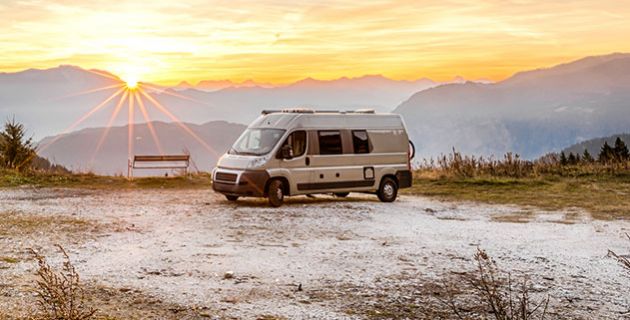
When in the market for a recreational vehicle (RV), be sure to factor in RV registration fees and other registration-related expenses once it's time to estimate the overall cost.
How to Estimate Motorhome Registration Fees
You'll register your motor home through your state's Department of Motor Vehicles (DMV) office. Each DMV governs differently, using one, some, or all of the following criteria for determining registration fees for motor homes:
- Age of mobile home.
- Weight of mobile home.
- Length of mobile home.
- Market value of mobile home .
Depending on your state, the calculation process can be complicated. Idaho, for example, determines the fee by using a valuation factor based on one of the following motorhome chassis types: mini motor home, motor home, front engine diesel, rear engine diesel, or van conversions. Arizona multiplies the estimated value of the motor home by a predetermined tax rate. Oregon employs an easier fee system based on the RV's length.
Fortunately, many DMV websites provide registration fee calculators to help estimate the expected cost.
Other Fees for Mobile Homes
When estimating your total costs, don't forget to consider the costs of:
- Motorhome Insurance : A simple car policy leaves too many coverage gaps. Depending on your needs you should also consider specialized RV insurance protection. These plans provide higher liability limits and, in addition, cover replacement costs of personal belongings, emergency expenses, and towing costs for heavy-duty RVs weighing over a ton. There are several insurance providers that specialize in motor home coverage.
- Inspections and Smog Tests : This will depend on your place of residence. In most instances, an emissions test is required every two years. If your RV fails, you will be required to pay for the needed repair costs.
- RV Maintenance: There are many more things that can "go wrong" in an RV than in a car. Plus, towing fees, if needed, can be extremely costly depending on the size of your recreational vehicle.
- Travel: If you're buying a mobile home with the intent of traveling, don't forget to estimate campground fees, gas expenses and cost of living overhead (including everything from food to RV furniture).
Have you ever registered a motorhome? What about stocked one? Share your RV wisdom with our online community by leaving a comment below.
DMV.ORG Article Categories
- Safety & Insurance
- Car & Driving Technology
- Quick Tips, Guides & DMV Basics
Recent Articles

- Notice of Data Breach
- Event Calendar
- Apply or Register
- Assistance & Support
- Business & Workforce Development
- Elections & Voting
- Environment & Natural Resources
- Licenses, Permits, Records & Inspections
- Parks & Recreation
- Property & Home
- Public Safety & Law
- Recycling & Waste Disposal
- Roads & Transportation
- About Otter Tail County
- Our Long-Range Strategic Plan
- Departments
- Boards & Commissions
- Policies & Ordinances
- Requests for Data or Public Records
- Safety Data Sheets
Recreational Vehicles and Trailer Registration
Back to vehicles.
- Gun Permits
- Liquor Licenses
- Tobacco Licenses
- Auctioneer Licenses
- Pawnbroker Licenses
- Precious Metals Dealer Licenses
- Transient Merchant Licenses
- Adult Foster Care Licensing
- Existing Child Care Providers
- New Child Care Providers
- Driver’s License Exams
- Driver’s Licenses/MN State ID’s
- License Center FAQ’s
- Food & Beverage Licensing
- Manufactured Home Parks & Recreational Camping Areas
- Swimming Pools & Spas
- Vacation Home Rentals
- Youth Camps
- Marriage Licenses
- Marriage Officiant
- Notary Registration
- Conditional Use Application
- Demolishing Buildings / Permit by Rule
- Ice Damage Repair
- Preliminary Plat Application
- Septic Permit Applications
- Structure and Shoreland Permit Applications
- Variance Application
- Birth Certificate
- Data and Records Request
- Death Certificate
- Document Standards
- E-Recording Documents
- Land Records
- State Audit Reports
- Fireworks Permit Application
- Park Use Permit Application
- Water Event Permit Application
- Water Structure Permit Application
- Titles, Tabs and Plates
Minnesota state law requires that trailers and recreational vehicles, including snowmobiles, boats and ATVs, be registered.
ATV (All-Terrain Vehicle)
Fees vary by type. A license is valid for three years.
A bill of sale is required to transfer registration from one owner to another. If your ATV is registered in another state, you may use your ATV in Minnesota for up to 30 days. If the ATV is not registered or it has been more than 30 days, you must obtain a Minnesota ATV registration.
To obtain an ATV license and registration, the owner must provide:
- Engine Size
- Serial Number
- Driver’s License
Recreational Vehicle Regulations
Registration fees vary by length and type of boat. A watercraft license is valid for 3 years. All motorized watercraft regardless of length and non-motorized watercraft over 10 feet must be licensed in the state of Minnesota. Most motorized watercraft over 16′ in length will have a certificate of title which must be used to transfer ownership. Non-titled watercraft can be transferred using a bill of sale.
To obtain a watercraft license and registration, the owner must provide:
Minnesota Boating Guide
Registration fees vary. A snowmobile license is valid for 3 years. Only a current registration for your snowmobile is required in Minnesota. Transfer of ownership for snowmobiles is completed using a bill of sale. Snowmobiles operating on state and grant-in-aid trails must have a Snowmobile State Trail sticker.
To obtain a snowmobile license & registration, the owner must provide:
Snowmobile Safety Laws, Rules, & Regulations
Registration is required for all trailers traveling on Minnesota roads. Trailer registration is offered at the Otter Tail County License Center .
Contact Information
License Center Phone: 218-998-8080
Similar Services
We couldn't match any similar services
© 2024 Otter Tail County, Minnesota Privacy Policy | Terms of Service | Accessibility Happily grown by CYBERsprout


IMAGES
VIDEO
COMMENTS
Effective with applications submitted on Aug. 1, 2019, and later. Lien Fee. $2.00. Fee is due for each lien to be listed on title (e.g. 1 lien =$2, 2 liens = $4, etc.). MV Sales Tax. 6.875% for purchase on/after July 1, 2023 6.5% for purchases prior to July 1, 2023. Due on the net purchase price of the vehicle unless the purchase is exempt from ...
Typical fees to transfer and title a vehicle: Title Fee: $8.25 (plus $2 for each lien recorded) Transfer Tax: $10. Public Safety Vehicle Fee: $3.50. Technology Surcharge: $2.25. Filing Fee: see below. Motor Vehicle Sales Tax Page. The typical fees listed above do not include registration tax, as that is determined for each specific vehicle.
445 Minnesota Street, Suite 190 Saint Paul, MN 55101-5190 Email: Motor Vehicle [email protected] Phone: Motor Vehicles: (651) 297-2126 Digital License Plates: (651) 284-3896 Office Locations: (651) 297-2005 Assistance for Hearing Impaired Callers (TDD/TTY): (651) 282-6555
Initial Non-Titled Utility Trailer. Required Fee Fee Amount Explanation . Registration Tax $55.00 permanent one-time registration Plate Fee $2.50 adhesive plate/sticker MV Sales Tax 6.5% of net purchase price State/Deputy Filing Fee $10.00 Due with transaction . Transfer of a Non-Titled Utility Trailer. Required Fee . Fee Amount
by an out-of-state resident and not apportioned with Minnesota may obtain a 30 day registration for the time period the vehicle will be temporarily used for interstate and intrastate travel. The registration fee is 1/12 of the annual fee based on the gross vehicle weight, and is available in 30, 60, and 90 day increments plus the $11.00 filing fee.
Title fee - $7.25 (an additional $2 is due to record a lien) Public Safety Vehicle Fee - $3.50 Filing Fee - $10 License plate fee - $6 ($4.50 for single plate issue - such as trailers and motorcycles) Registration Tax: Minnesota has an "ad valorem", (Latin for "according to its value"), registration tax system for passenger class vehicles.
Eventually, all license plates in Minnesota will be manufactured using the DLP system. Digital License Plates are flat. The license plate numbers produced for the DLP system are black. If you have questions about the DLP system, please contact DVS at (651) 284-3896.
For trailers registered in Minnesota before July 1, 2001, and for which: (1) registration is desired for the remaining life of the trailer, the registration tax is $25; or. (2) permanent registration is not desired, the biennial registration tax is $10 for the first renewal if registration is renewed between and including July 1, 2001, and June ...
Utility, boat and snowmobile trailers with a GVWR under 4,500 pounds don't need a title in Minnesota, unless there is a lien. To get a title for your trailer, you should bring the registration as proof of ownership to the local DMV. You'll also need to sign and bring section B of the Application to Title and Register a Motor Vehicle.
Snowmobiles need to be registered at a Driver and Vehicle Services (DVS) location, or at: DNR License Bureau. 500 Lafayette Road. St. Paul, MN 55155. If you're buying from a dealer, the dealer should handle the registration. Both new registrations and renewals for non-trail use cost $53.50, and are good for 3 years.
Reference: Minnesota Statutes, 168.013 - provides information in determining vehicle registration tax. For additional assistance with determining registration tax, contact your local deputy registrar or email DVS at [email protected].. Fees Due with Each Registration Renewal. Filing Fee: $8 ; Technology Surcharge: $2.25 Wheelage: $10 - $20 (if applicable)
Minnesota RV registration fees are $15.50 for both RVs and trailers. You'll also have to pay a registration tax based on the age and value of your vehicle. To get more information on this tax, you can contact your local deputy registrar. ... For travel trailers, the registration fee is based on length. You'll pay $72 for TTs under 16 feet ...
168.012 VEHICLES EXEMPT FROM TAX OR LICENSE FEES. Subdivision 1. Vehicles exempt from tax, fees, or plate display. (a) The following vehicles are exempt from the provisions of this chapter requiring payment of tax and registration fees, except as provided in subdivision 1c: (1) vehicles owned and used solely in the transaction of official ...
445 Minnesota Street, Suite 190 Saint Paul, MN 55101-5190 Email: Contact Form Phone: Motor Vehicles: (651) 297-2126 Digital License Plates: (651) 284-3896 Office Locations: (651) 297-2005 Assistance for Hearing Impaired Callers (TDD/TTY): (651) 282-6555
Cost of disability license plates is $19. You and your physician must complete and sign an Application for Disability P arking Certificate. A temporary 90-day certificate will be issued at the time of application. Disability plates, placard or both will be mailed to you by the state. Last updated: 4/9/2024 8:38 AM.
Vehicle Registration (tabs) expire each year (refer to your vehicle's current tabs for the month) and must be renewed. New resident. Renew by mail. Renew in person. Renew online.
Registration Fees. Type of Trailer / Registration. Fee. Minnesota Registered Trailer. $20. New or New to Minnesota. $55. Enable Google Translate. Effective July 1, 2003, trailer owners wishing to renew or apply for registration on small trailers are required to obtain permanent registration.
Quotes are difficult as fees vary depending on transaction types & how many fees apply. Place all of this in a sealed envelope & mail to 623 NW 4the St Brainerd, MN 56401 or place in our outside drop box (next to front door). For faster service please include a self-addressed stamped envelope.
Title Technology Surcharge $2.25. Effective with applications submitted on or after Aug. 1, 2019. Lien Fee $2.00. Fee is due for each lien to be listed on title (e.g. 1 lien =$2, 2 liens = $4, etc.). Motor Vehicle Sales Tax 6.5%. Due on the net purchase price of the vehicle unless the purchase is.
Park trailer. "Park trailer" means a trailer that: (1) exceeds 8-1/2 feet in width in travel mode but is no larger than 400 square feet when the collapsible components are fully extended or at maximum horizontal width; and. (2) is used as temporary living quarters. "Park trailer" does not include a manufactured home.
Completed and signed Universal Registration form. Fee: $38.50; USED vehicles. Registered and purchased in Minnesota: Bill of sale from the current owner that includes the vehicle serial number. Completed and signed Universal Registration form. Fee: $12.50 for transfer only; $42.50 for transfer with renewal. Purchased out of state:
Each DMV governs differently, using one, some, or all of the following criteria for determining registration fees for motor homes: Age of mobile home. Weight of mobile home. Length of mobile home. Market value of mobile home . Depending on your state, the calculation process can be complicated. Idaho, for example, determines the fee by using a ...
Registration fees vary by length and type of boat. A watercraft license is valid for 3 years. ... Registration is required for all trailers traveling on Minnesota roads. Trailer registration is offered at the Otter Tail County License Center. Fees vary. Contact Information. License Center Phone: 218-998-8080. Similar Services.